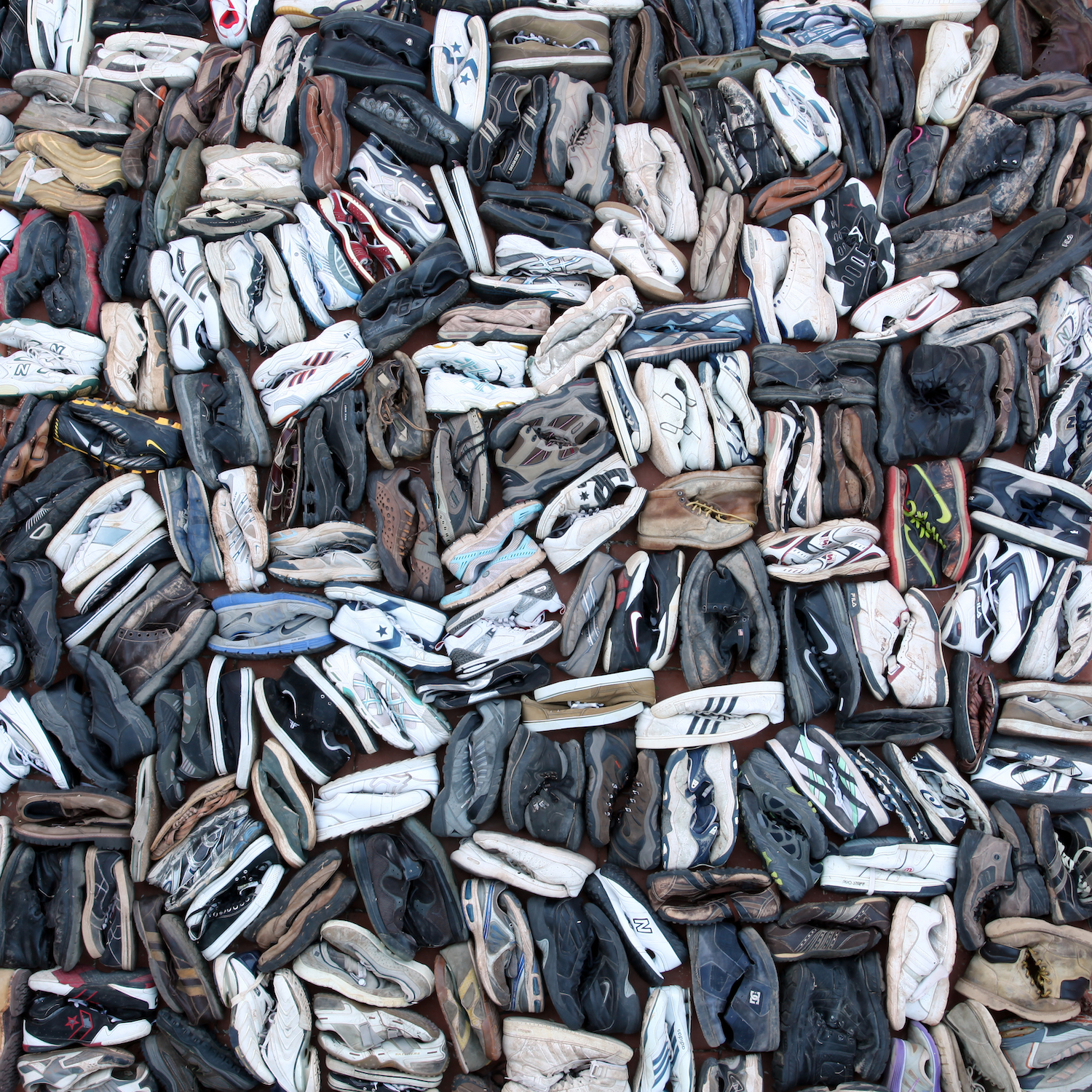El Sueño Americano / The American Dream
El Sueño Americano / The American Dream
El Sueño Americano / The American Dream is a photographic documentation of the personal belongings carried by migrants and those seeking asylum that were seized by U.S. Customs and Border Protection at a processing facility near the U.S./Mexico border in southwest Arizona.
These belongings, necessary for hygiene, comfort and survival, were deemed “non-essential” or “potentially lethal.”
I ask the viewer to consider these photographs as untold and unknown stories, markers of human journeys cut short.
My intent is to explore the humanity of those who risk their lives crossing the desert into the United States to create a personal connection for the viewer and to extend compassion and empathy to those who seek a better life.
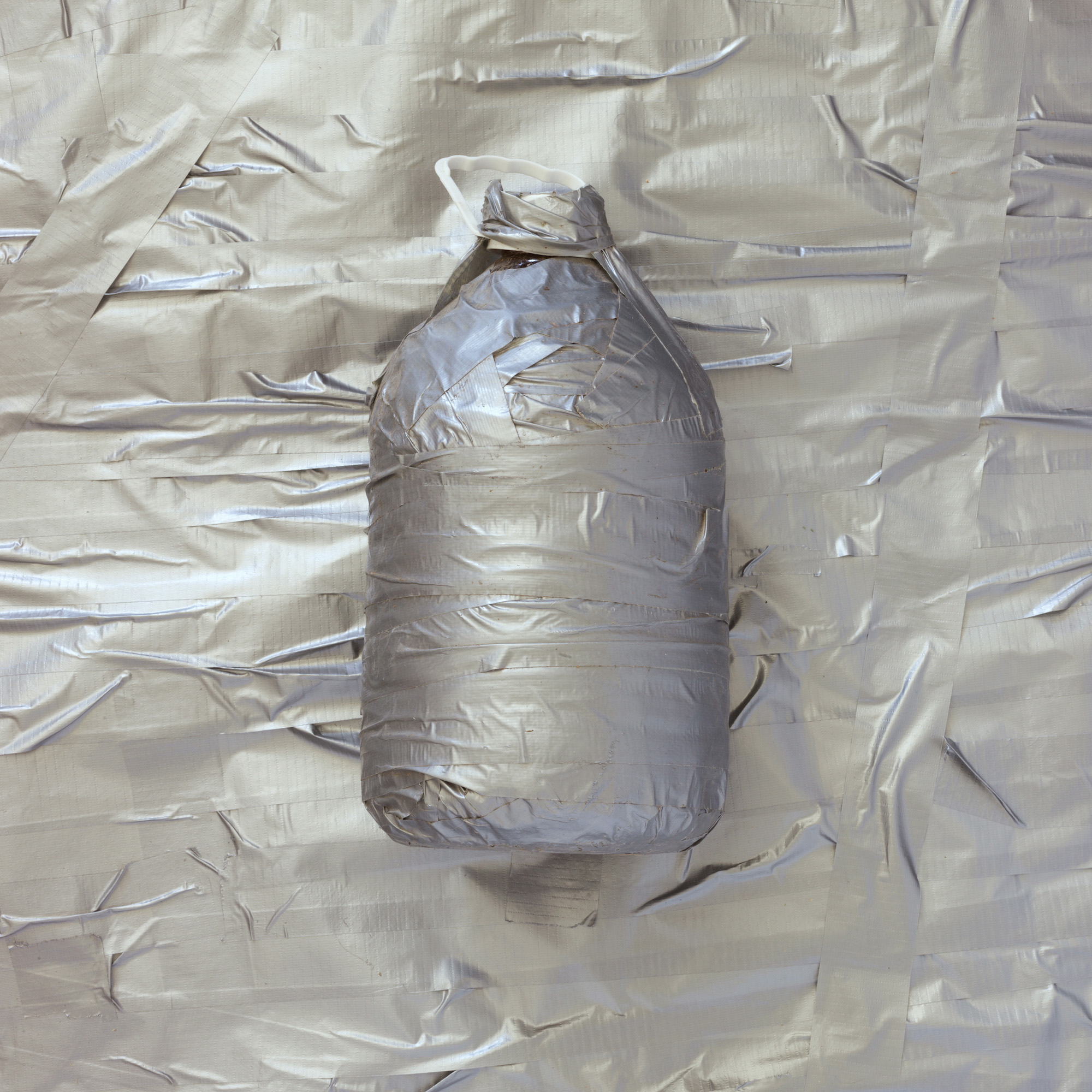
This migrant water bottle was reinforced with duct tape for protection while crossing the desert. One gallon of water weighs 8.36 pounds. A bare minimum of one gallon of water per day is needed when temperatures exceed 80 degrees when physical activity is involved to avoid severe dehydration leading to hyperthermia (extreme heat exposure) and death. The average number of days it takes a migrant to cross the desert is about seven.

Backpack carried by a migrant or someone seeking asylum confiscated and discarded by U.S. Customs and Border Protection at a processing facility in southwestern Arizona.

Backpack carried by a migrant or someone seeking asylum confiscated and discarded by U.S. Customs and Border Protection at a processing facility in southwestern Arizona.

Intimate personal belongings carried by migrants or those seeking asylum confiscated by U.S. Customs and Border Protection and thrown in the trash.
Now That’s an Alien!, 2018
50% Off Cosmetics, 2020
Virgen de Guadalupe Necklace, 2019
Chip and Dale, 2018



A spare pair of brown ultra-suede Converse sneakers carried by a migrant confiscated by U.S. Customs and Border Protection during the initial stages of processing and discarded.
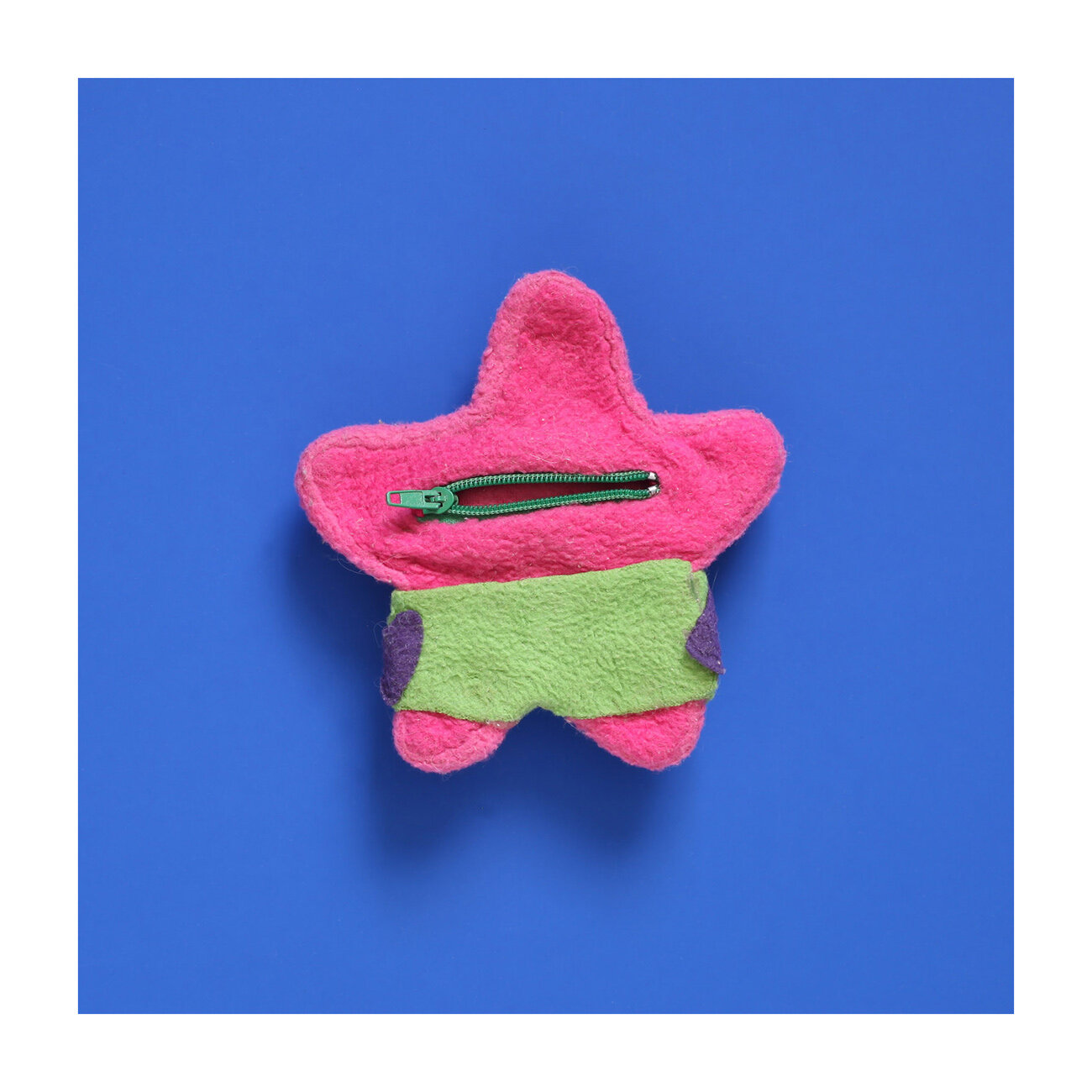
A small coin purse carried by a migrant confiscated by U.S. Customs and Border Protection considered non-essential personal property and discarded during initial stages of intake.

A bible carried by a migrant or asylum seeker, confiscated by U.S. Customs and Border Protection and discarded during the initial stages of processing.
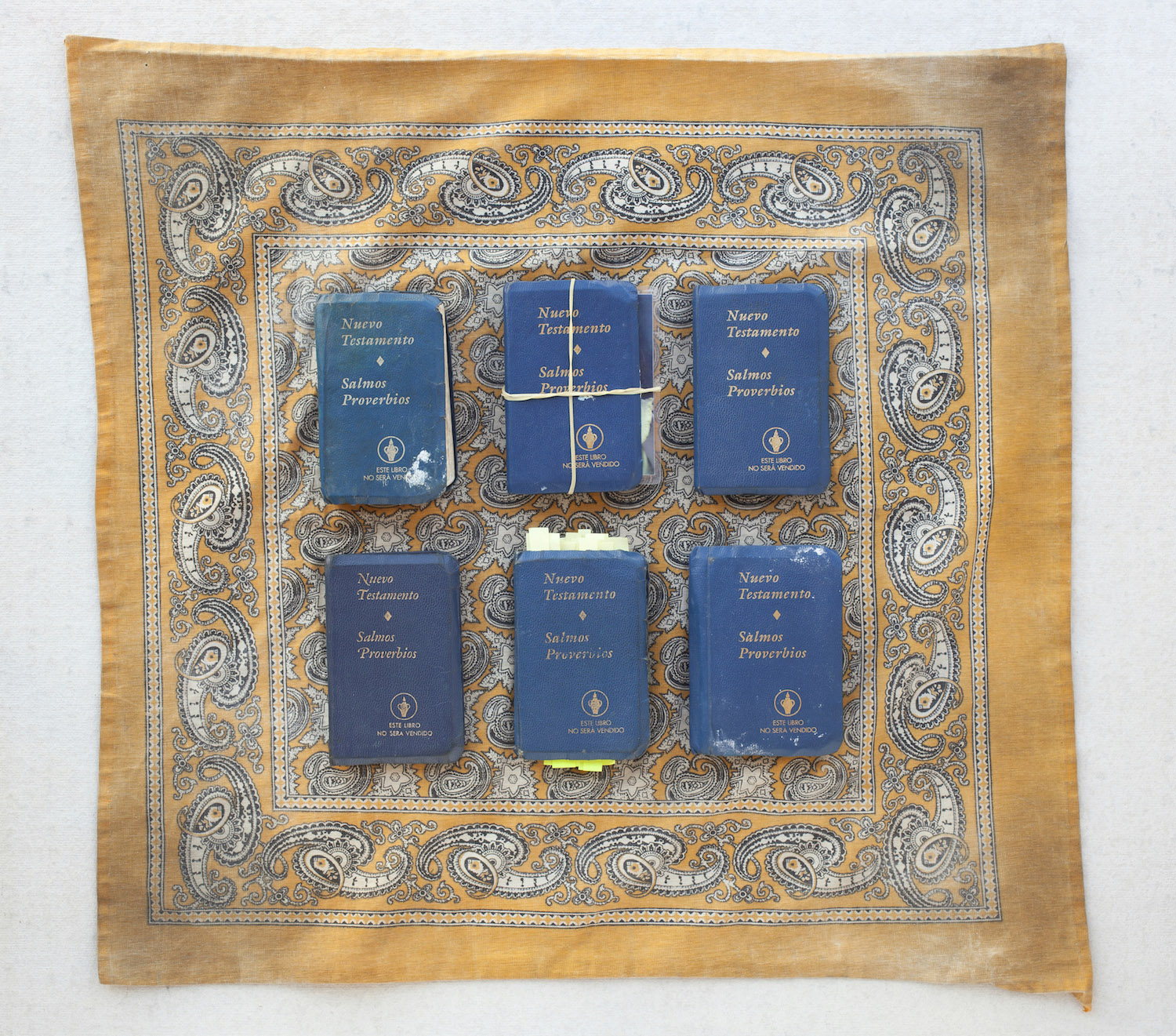
Placed upon a migrants' bandana, these New Testaments were considered non-essential personal property and discarded during the initial stages of processing.
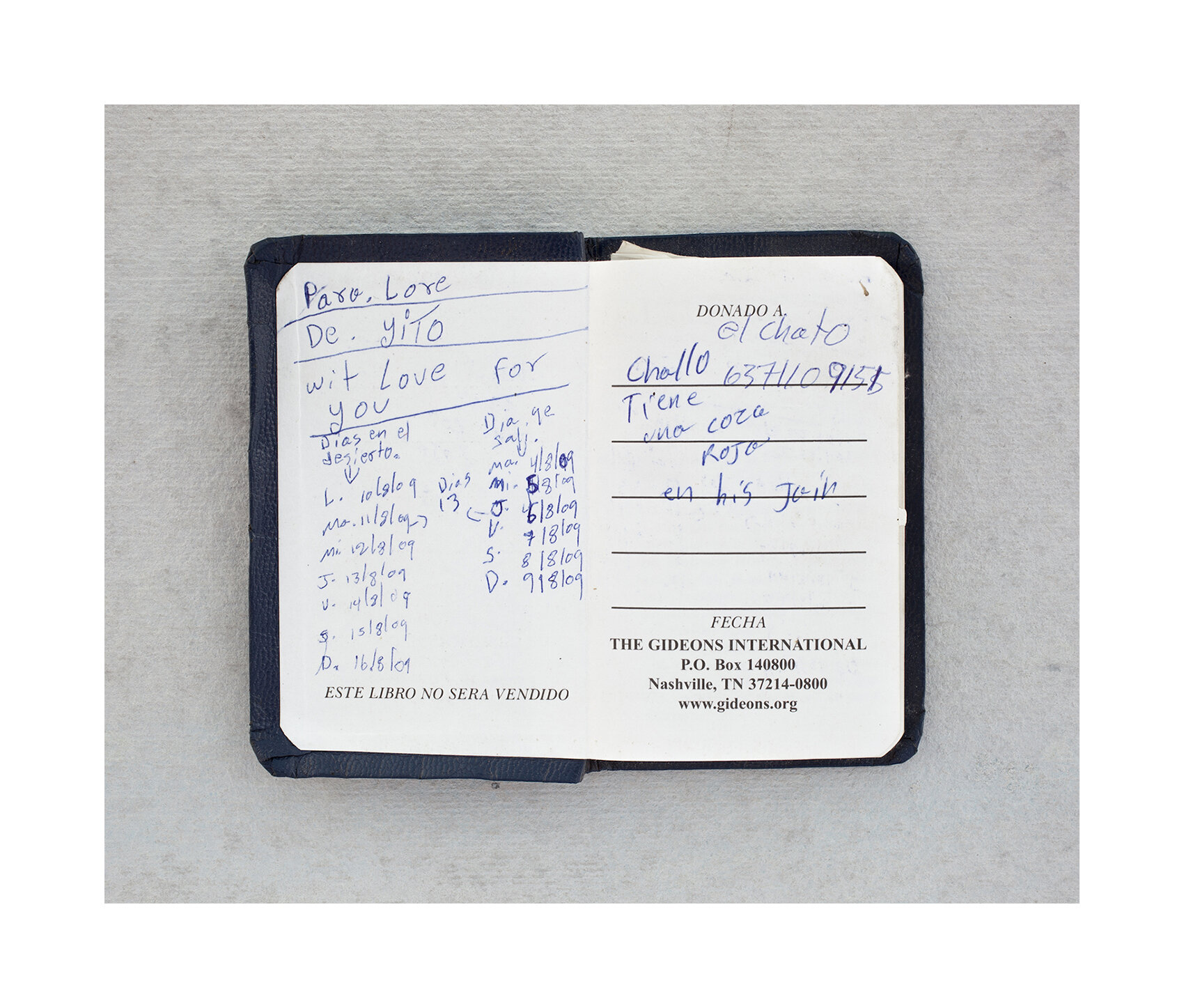
Inside cover of a New Testament with record of a migrants travel to and entry into the U.S. via the Mexico/Arizona border. This person crossed into the U.S. on August 10, 2009 and was apprehended six days later. The item was considered non-essential personal property and discarded during processing.
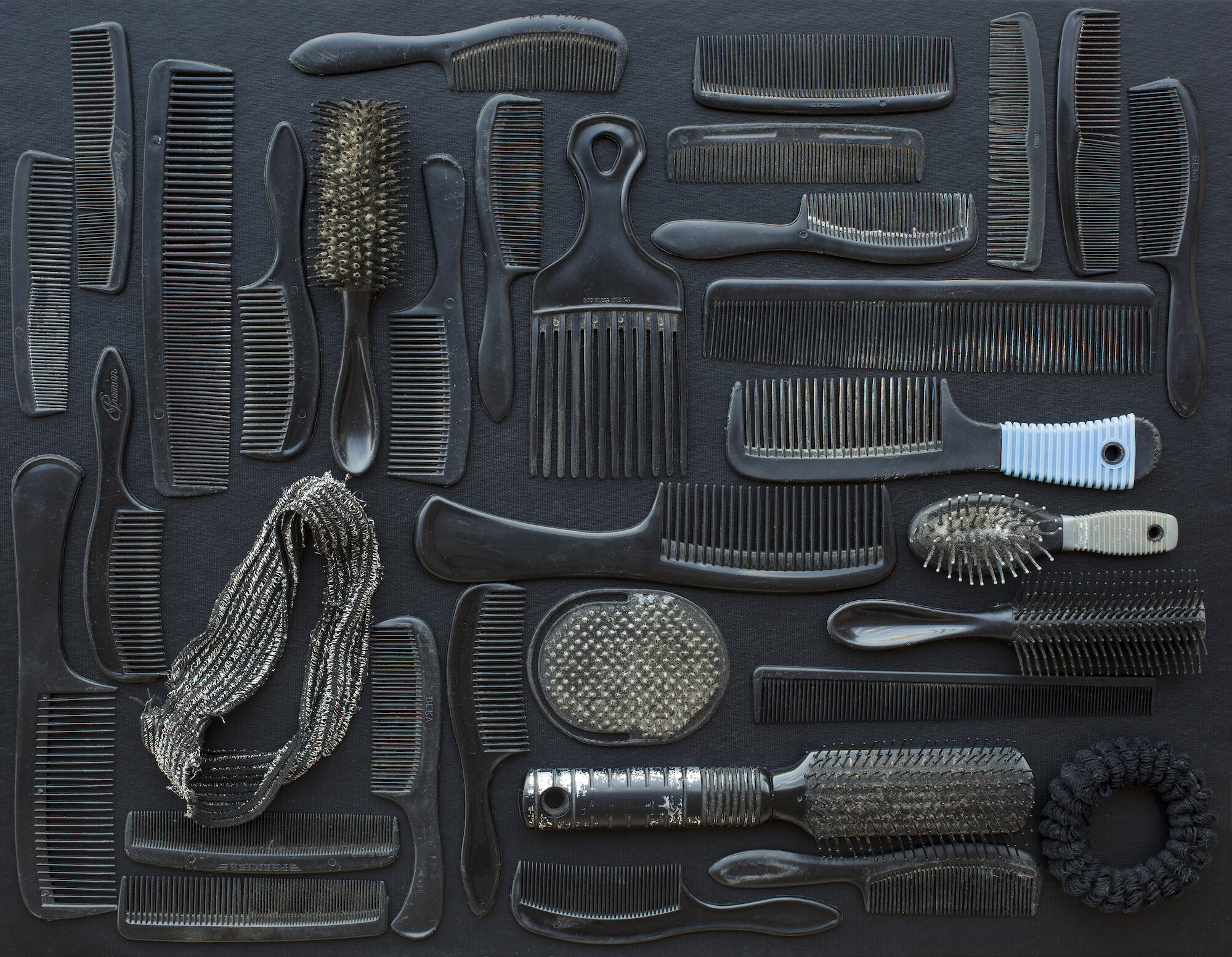
Personal items such as combs, brushes and elastic hair bands are considered non-essential, potentially lethal and discarded during intake.
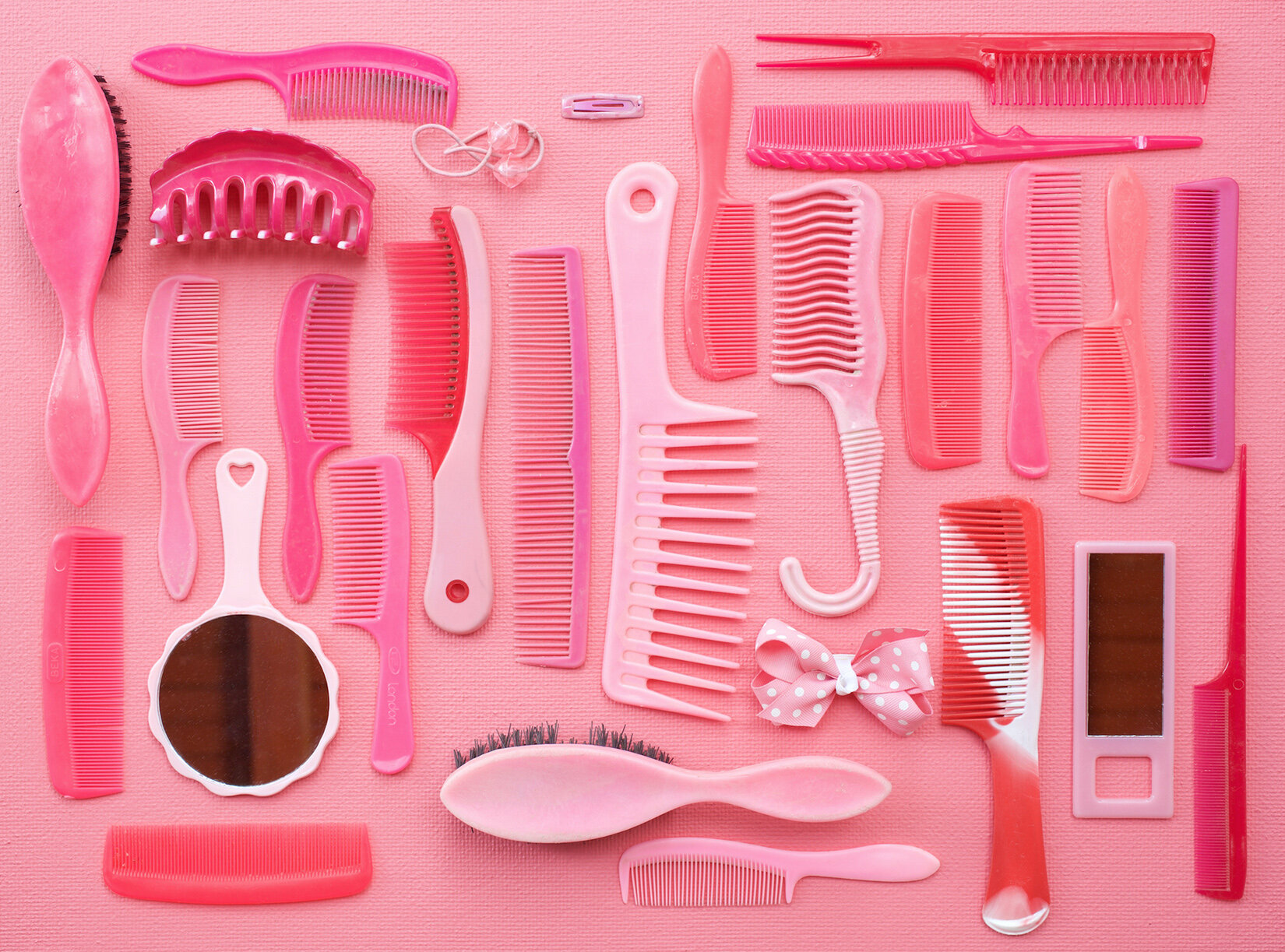
Carried by migrants or those seeking asylum, personal items such as combs and brushes are considered non-essential, potentially lethal and discarded during intake.
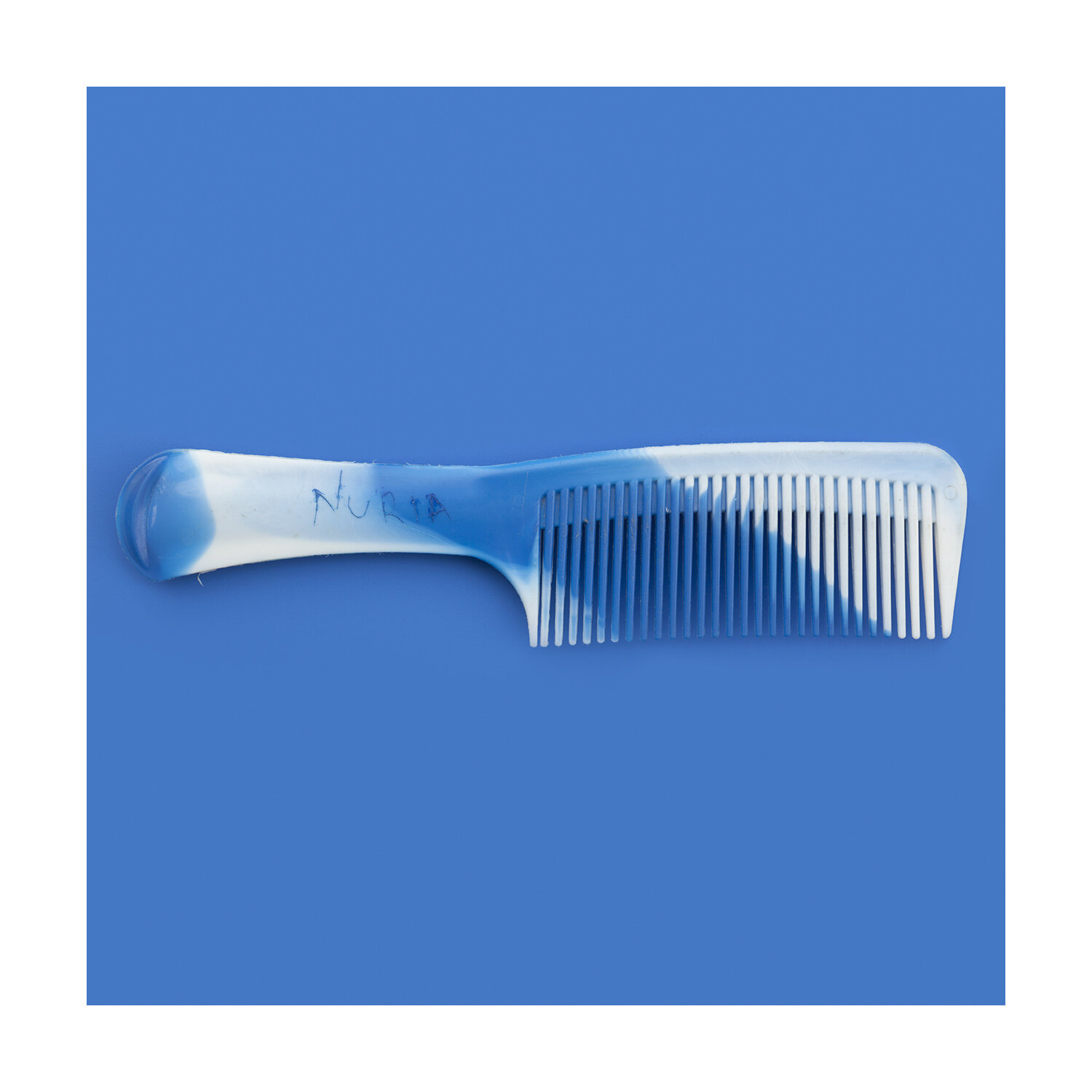
A migrant carved her name into this comb with an extremely sharp object and filled it in with ink from a pen. Considered potentially lethal or non-essential property discarded during intake.


About four percent of the U.S. population donates blood. Proof of citizenship is not required when giving blood.

Most migrants cross the desert at night and take refuge in whatever shade they can find during the day. Personal property considered non-essential is discarded during intake.
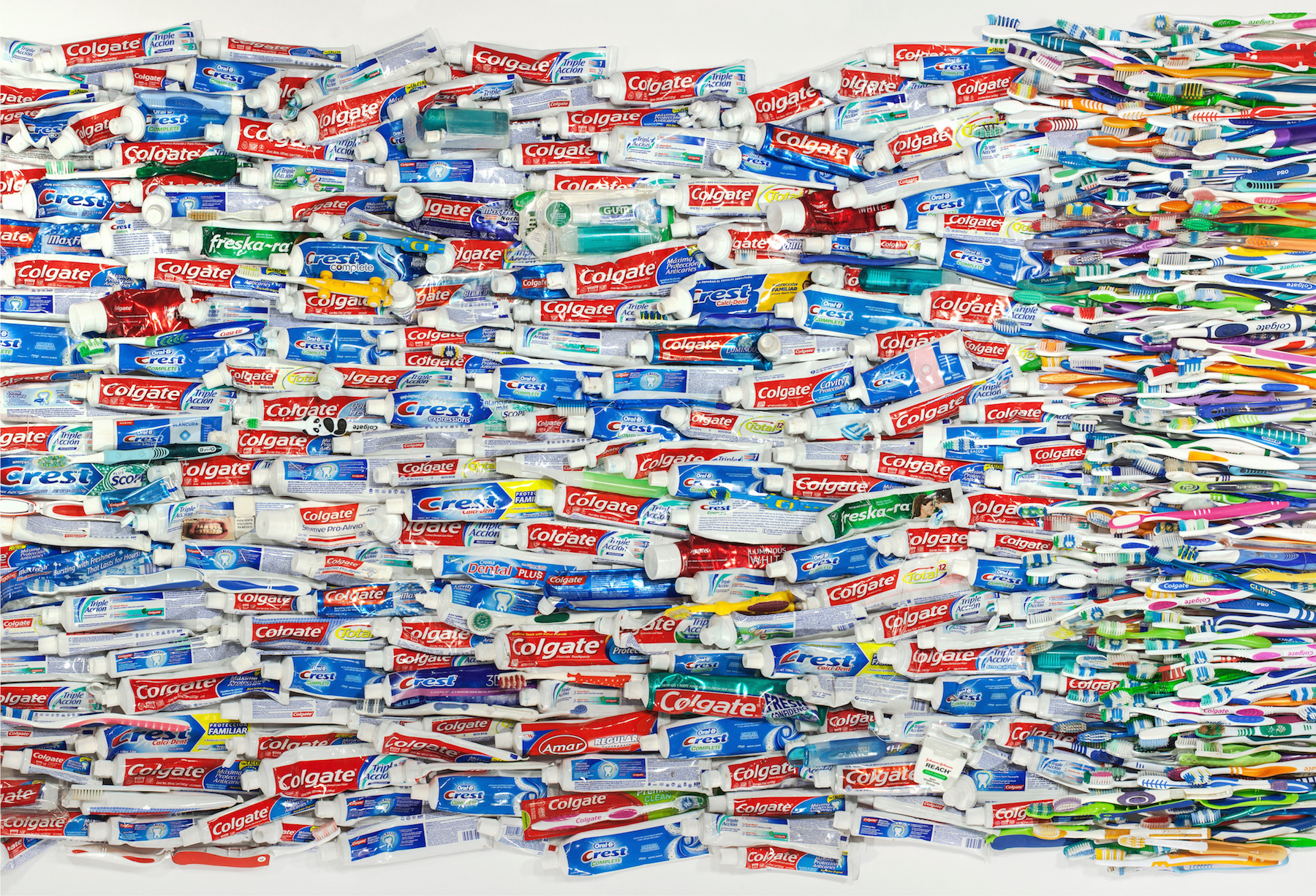
Toothpaste and toothbrushes are considered potentially lethal non-essential personal property and are disposed of during intake. While in custody, most migrants will not have access to toothpaste and toothbrushes.
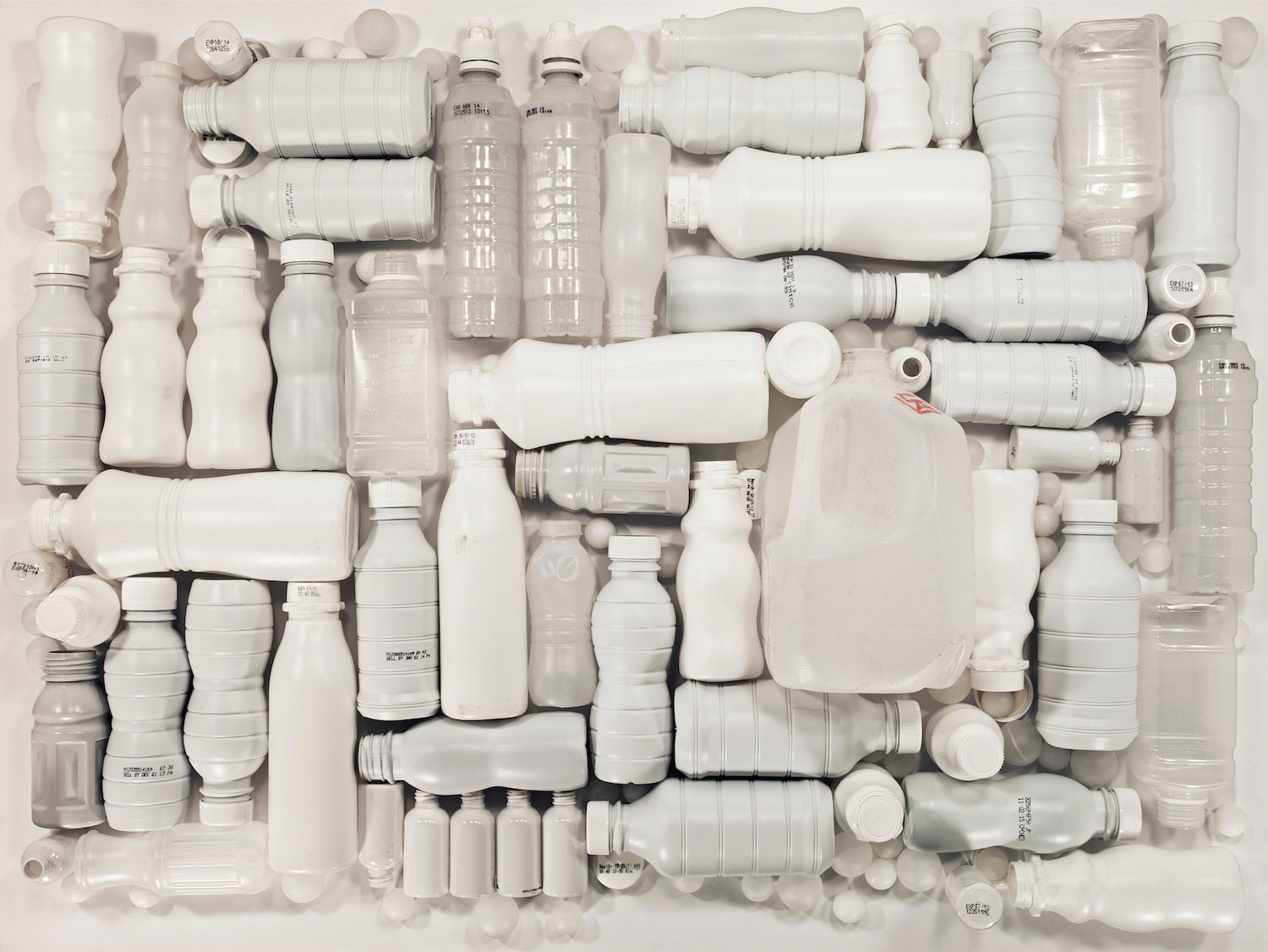
Water is the primary source of hydration when crossing the desert. Plastic bottles, stripped of labelling, contained dairy-based products like chocolate milk or fruit flavoured yoghurt drinks. The smaller bottles were “energy shot" supplements; harmful when crossing the desert.

Intimate personal belongings carried by migrants or those seeking asylum confiscated by U.S. Customs and Border Protection and thrown in the trash.
Contraceptive, 2018
16 Rings, 2018
Condom, 2018
Nickel and Tin, 2020
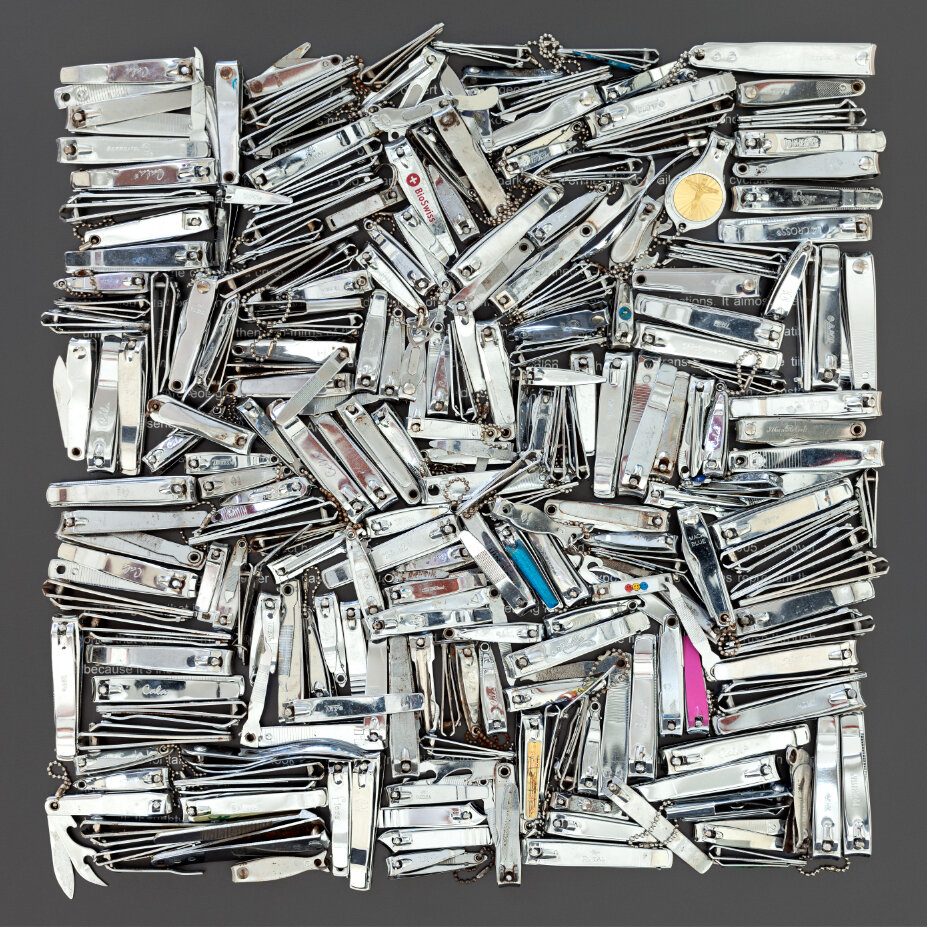
Personal items such as nail clippers are considered potentially lethal, non-essential personal property and discarded.
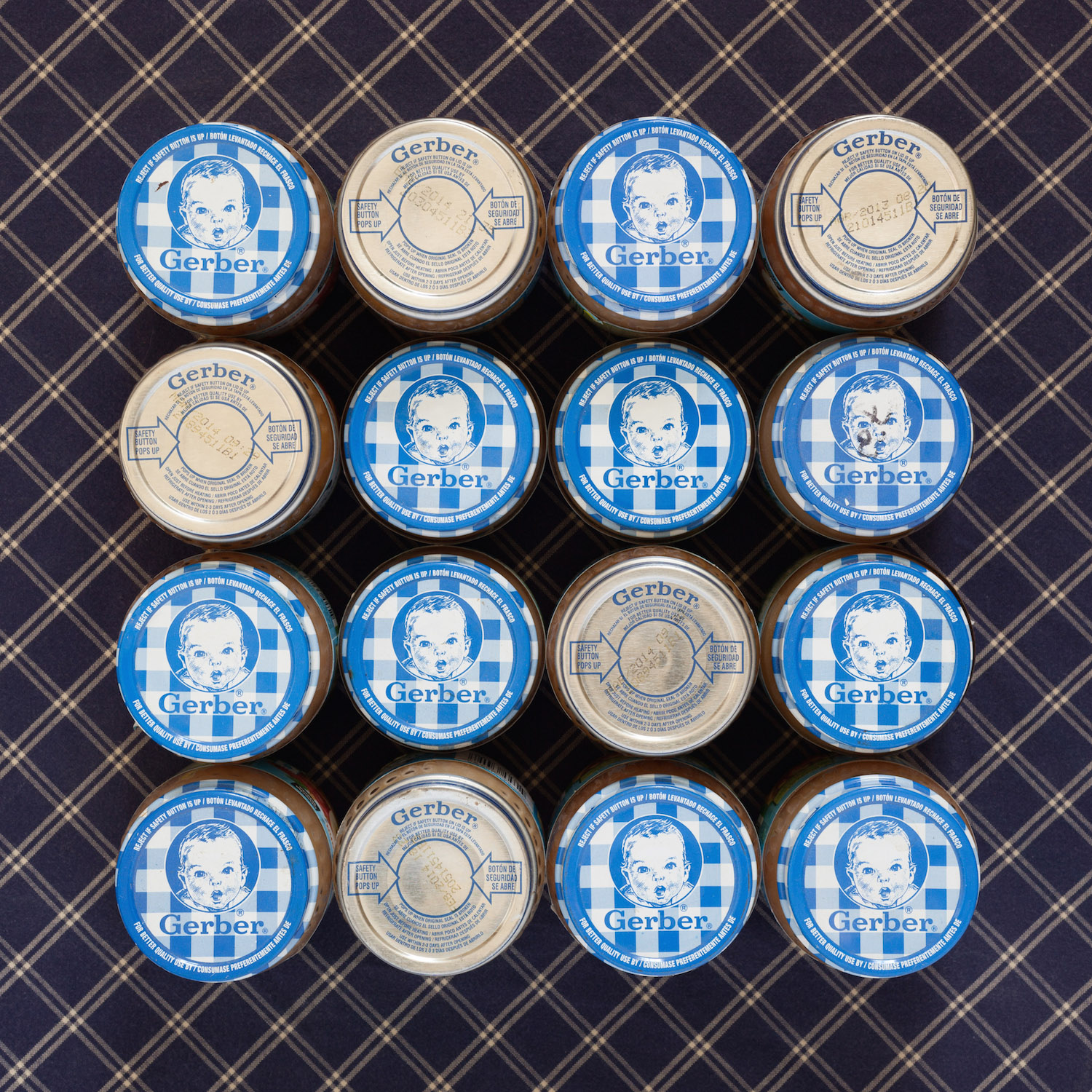
The type of food carried by migrants varies greatly. Babies and young children do travel with parents and older siblings. All food is considered contraband and is discarded during intake.
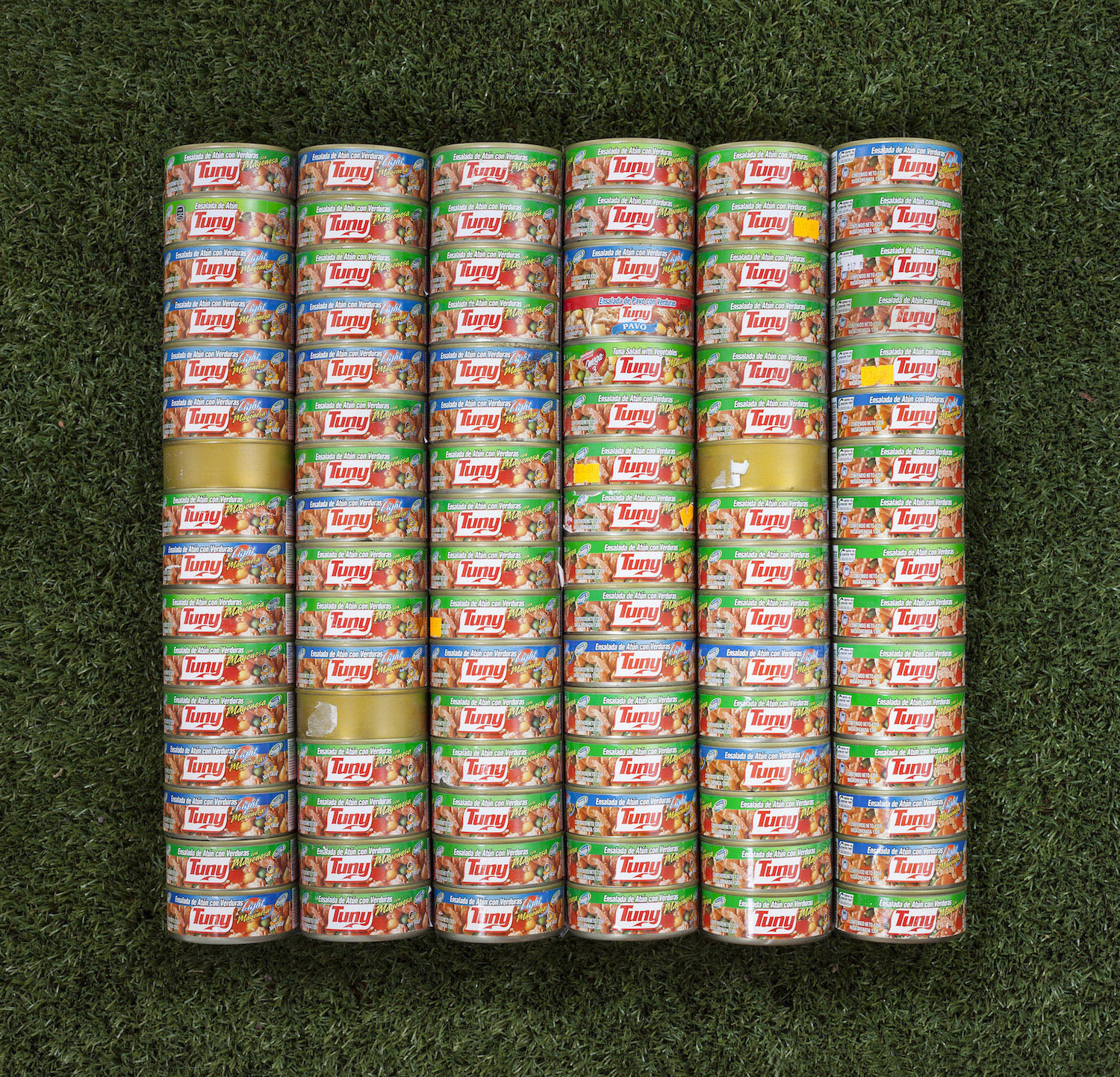
This tuna product is an efficient and compact source of food and protein. This particular brand features a pull-top lid which does not require a can opener. All food, including items such as powdered milk, beef jerky, granola bars and dehydrated soup is considered contraband and disposed of during intake.
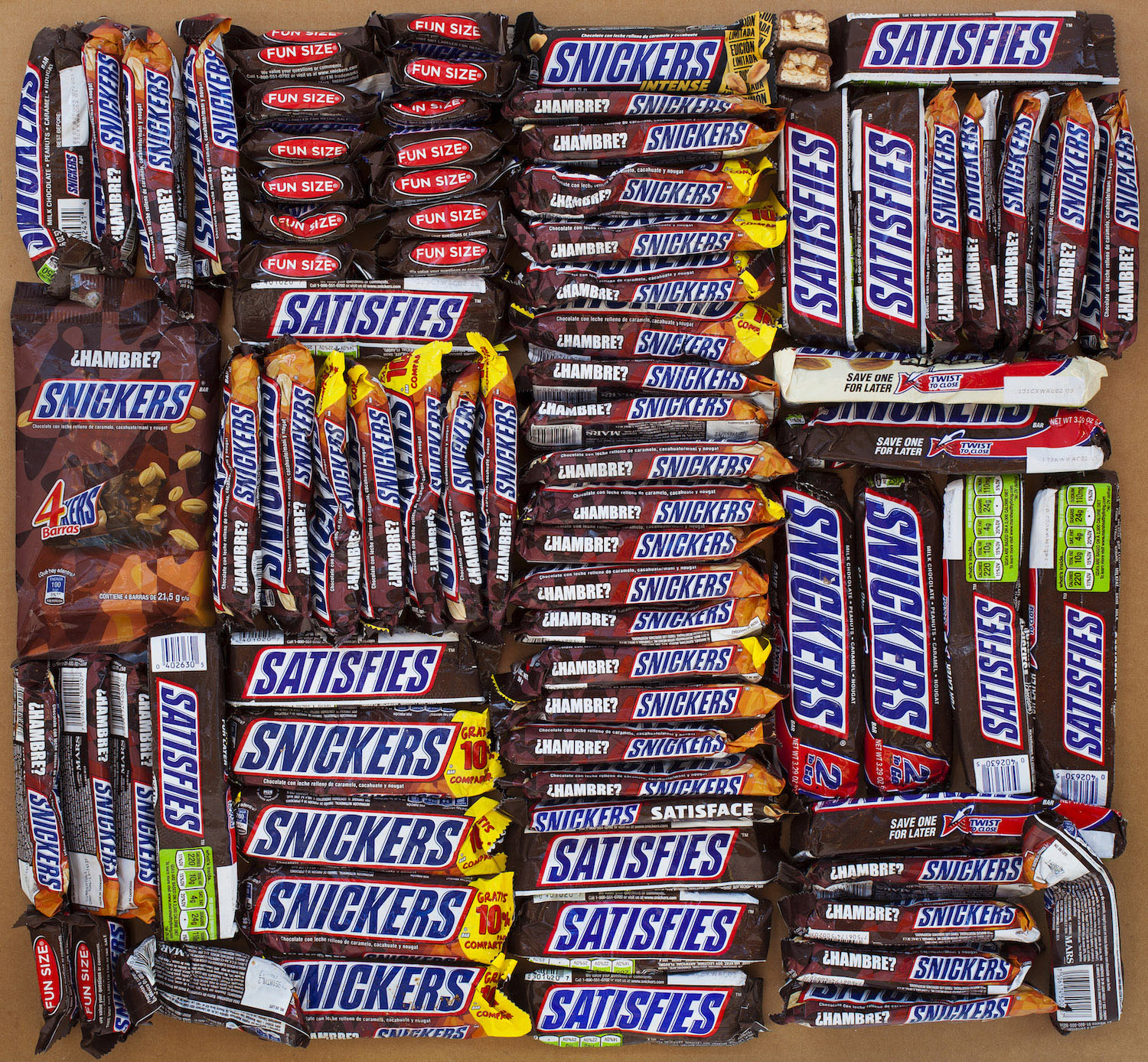
The Snickers brand of candy bar is generally the most popular of all carried by migrants and U.S. Border Patrol agents. All food is considered contraband and discarded during intake.
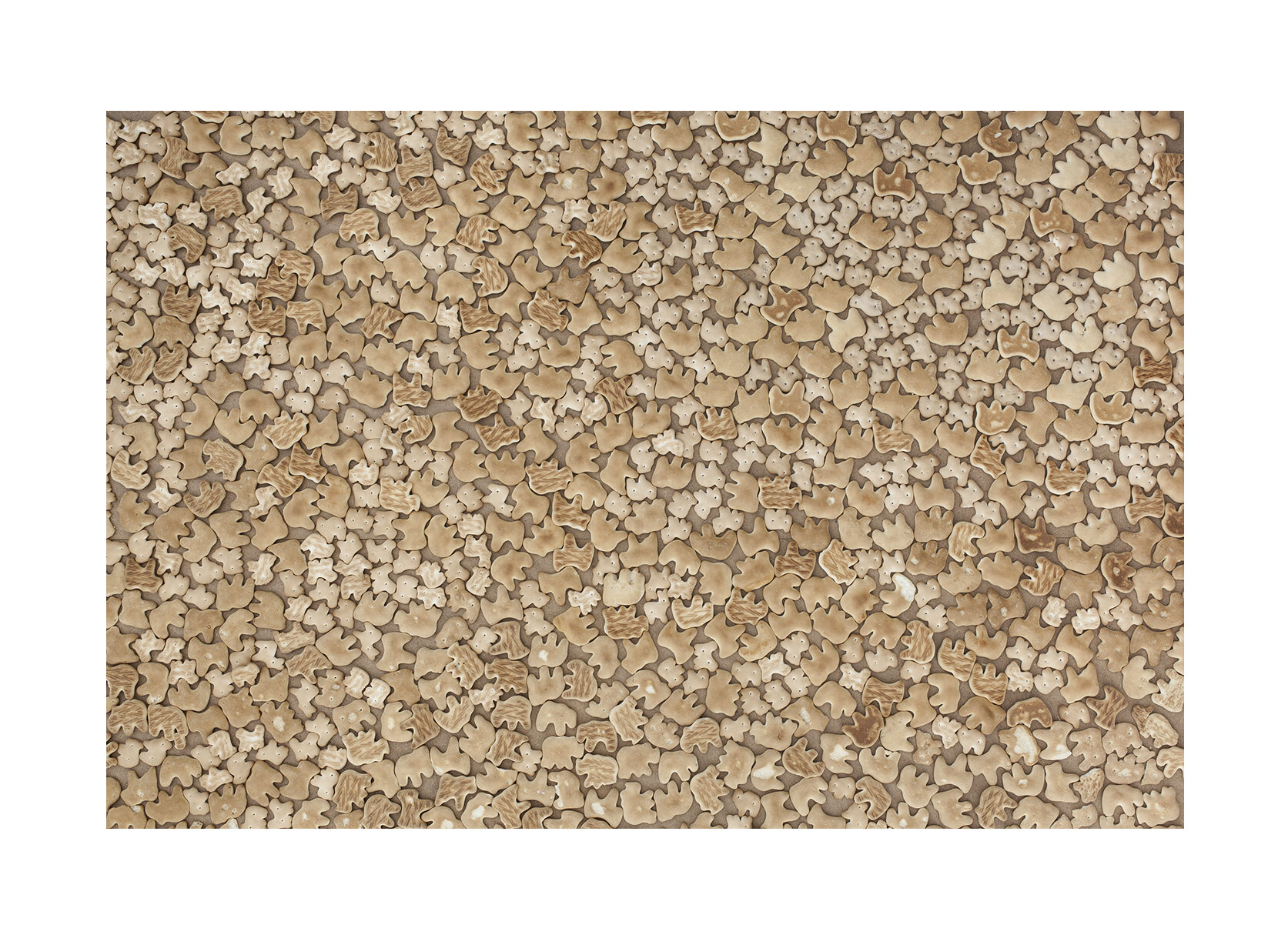
All food carried by migrants or asylum seekers is considered contraband and discarded during intake.
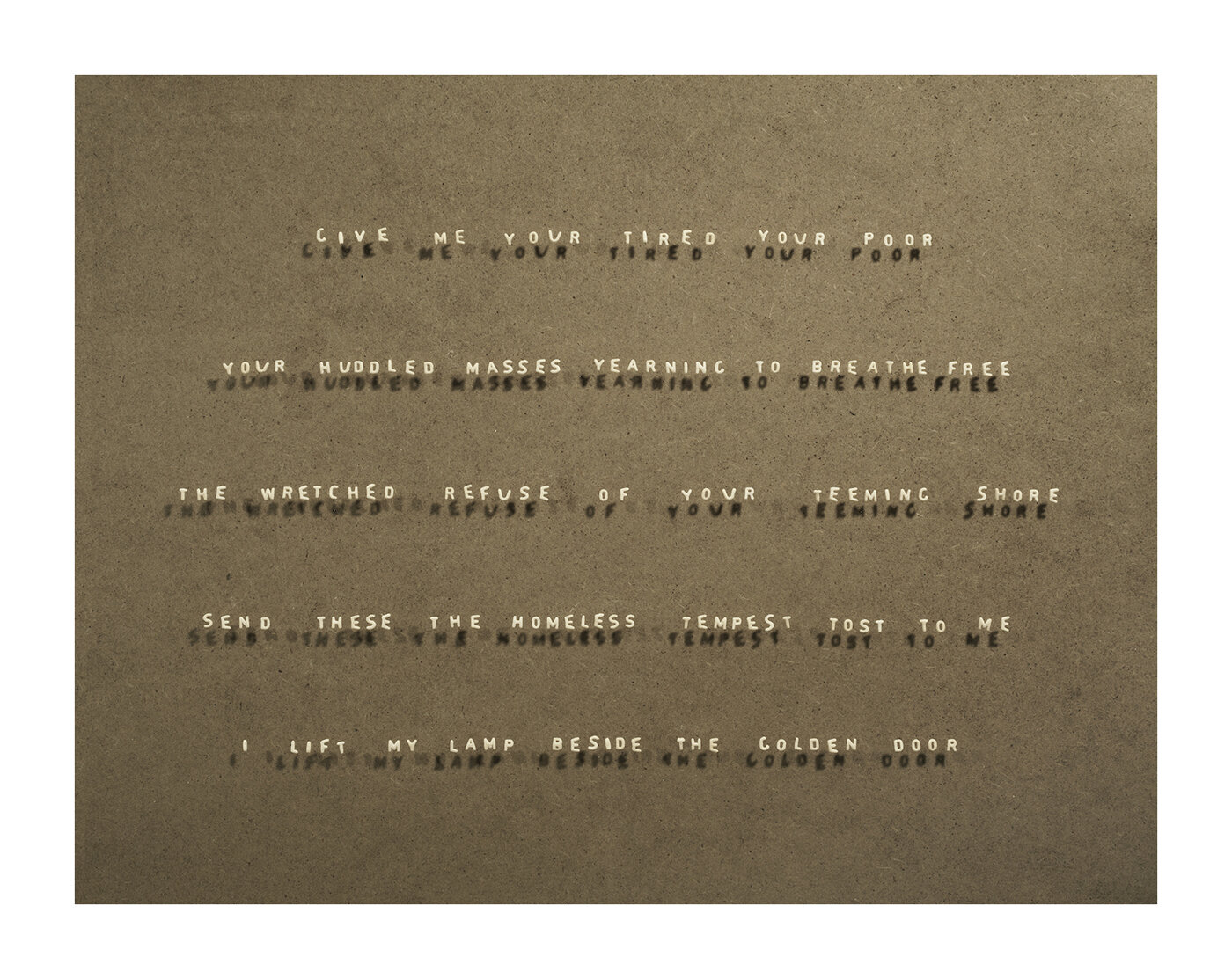
The Statue of Liberty was a gift from France to the United States in 1886. Using letters from dry alphabet soup carried by migrants, this is the 1903 sonnet written by Emma Lazarus engraved on a bronze plaque mounted on the pedestal of the statue welcoming all immigrants.

Emma Lazarus sonnet in Spanish welcoming all immigrants created using dry alphabet soup carried by migrants or those seeking asylum.
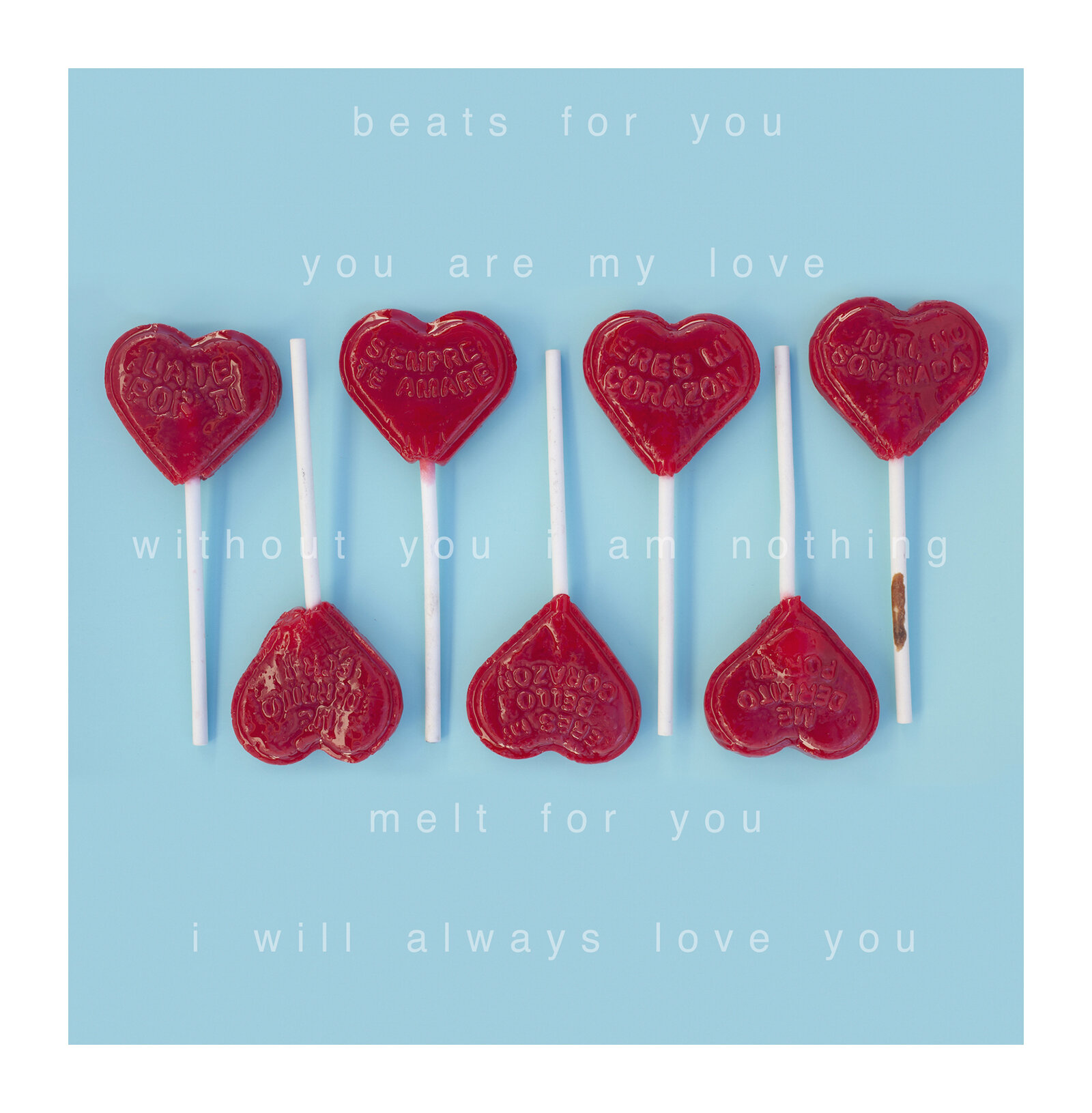
Candy food items are convenient to carry by migrants and asylum seekers and provide a quick boost of energy.

A photo booth strip memento carried by a migrant or asylum seeker confiscated by U.S. Customs and Border Protection and thrown in the trash during the initial stages of processing.

Loose passport or ID photos carried by migrants or those seeking seekers with no names or identification.
Portrait 1, Male Senior
Portrait 2, Youth and Young Male
Portrait 3, Professional Female
Portrait 4, Female, Essential Worker

Collection of loose passport or ID photos of a male worker.

Returning to the U.S. many migrants will carry items that have a geographic marker of where they are planning to return to for employment or a company they do business with.
Boise, Idaho
Holcomb, Kansas
Wilmington, North Carolina
Priceville, Alabama
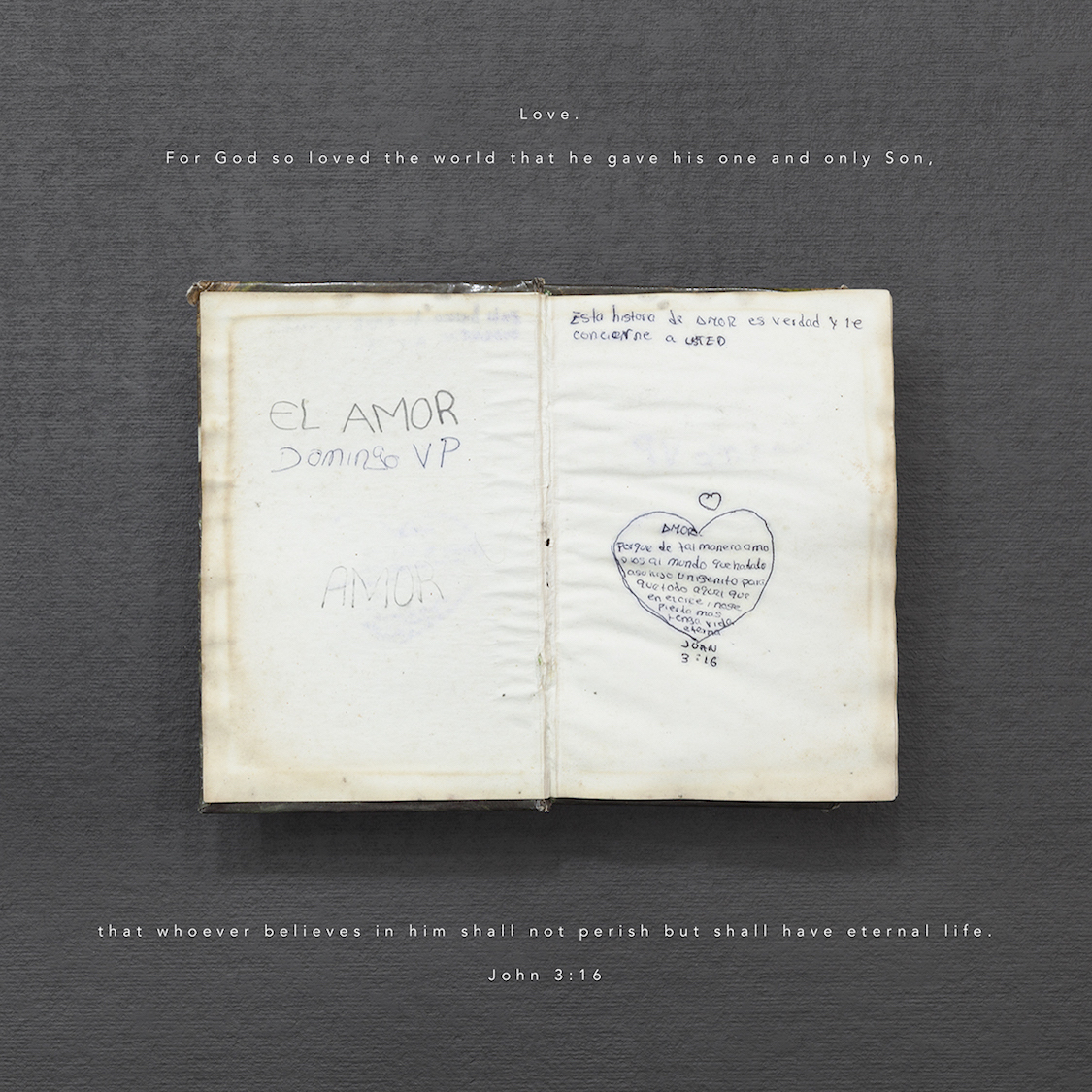
Inside cover of a prayer book carried by a migrant or asylum seeker confiscated by U.S. Customs and Border Protection and discarded during the initial stages at a processing center.

A durable and high-quality canteen carried by a migrant or asylum seeker confiscated by U.S. Customs and Border Protection during the initial stages of processing and thrown in the trash.
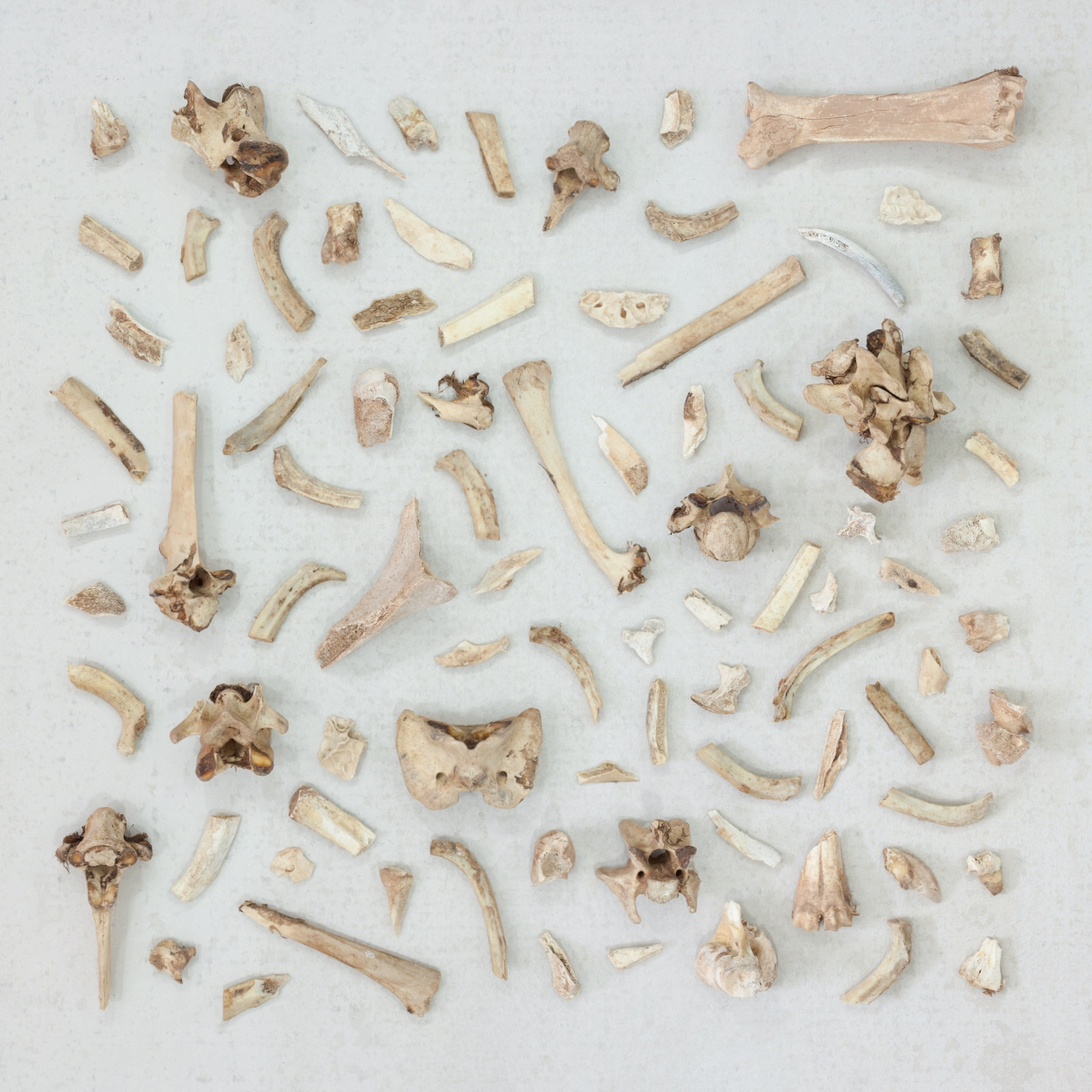
Border Patrol substations located on the Tohono O’odham nation inside Arizona are remote and have “Reservation Dogs” into an encampment; dogs which have friendly and approachable dispositions. Loosely adopted and fed by agents who in return guard against rattlesnakes or scorpions: they are free to come and go and will bring bones of remains to chew on.

Similar to belts, shoelaces are confiscated from migrants or those seeking asylum due to the fear that they will be used to harm themselves or others. Detainees subsequently move through the U.S. court system and are deported with no belt for their pants or shoelaces for their shoes.
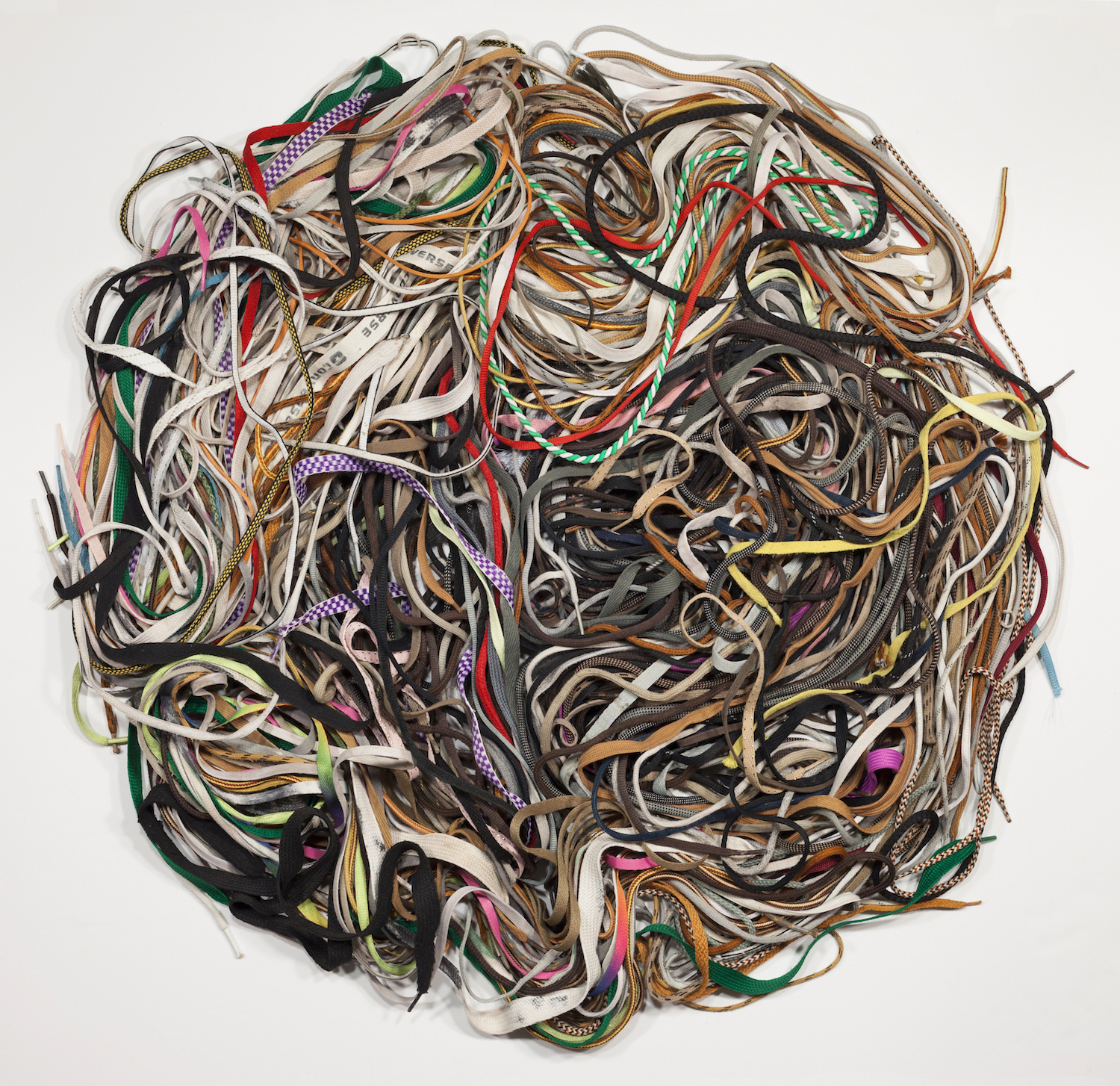
Similar to belts, shoelaces are stripped from shoes because they are considered lethal and could be used to harm themselves or others. Detainees subsequently move through the U.S. court system and are deported with no belt for their pants or shoelaces for their shoes.
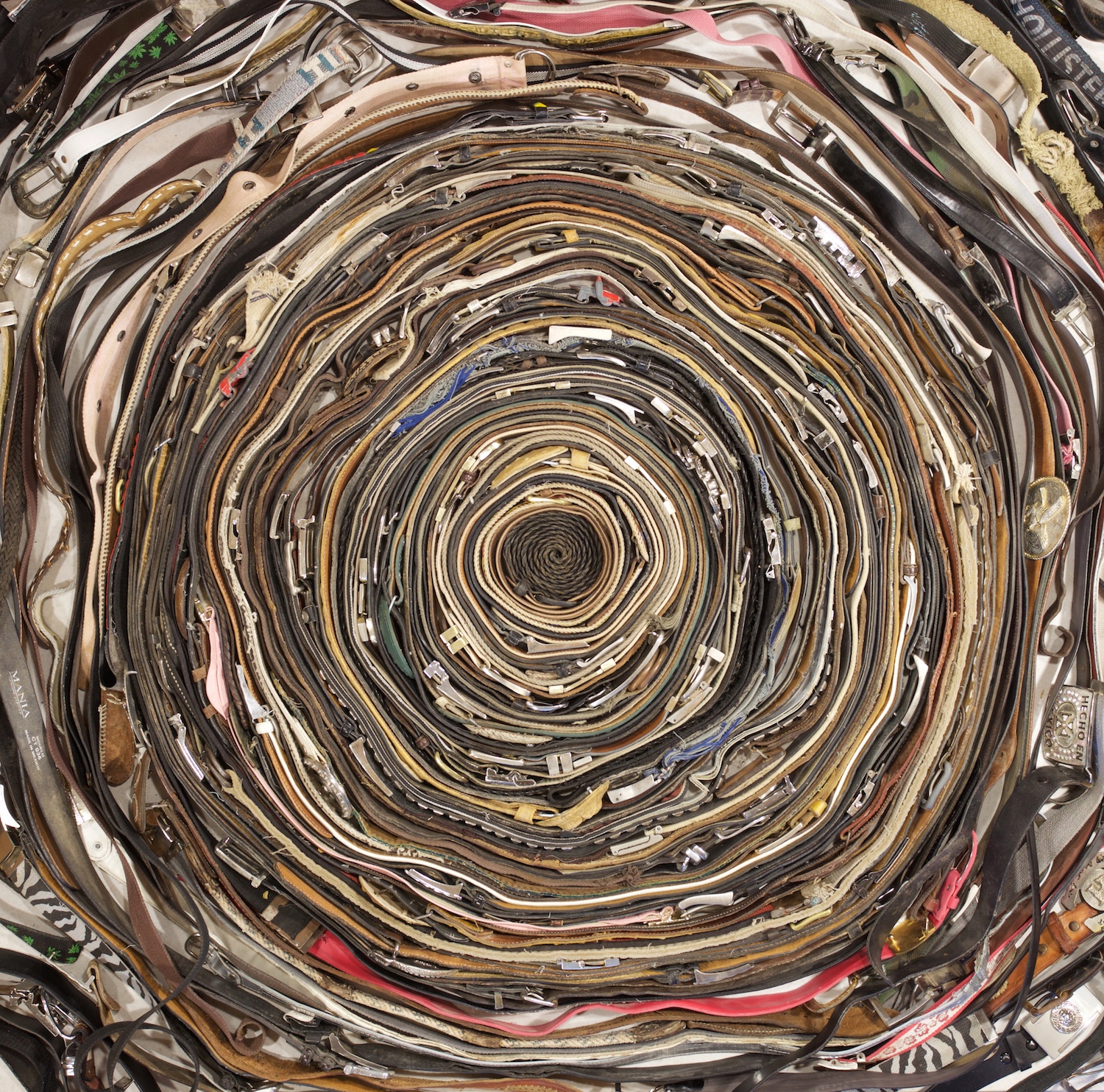
Similar to shoelaces, belts are confiscated from migrants or those seeking asylum due to the fear that they will be used to harm themselves or others. Detainees subsequently move through the U.S. court system and are deported with with no belt for their pants or shoelaces for their shoes.
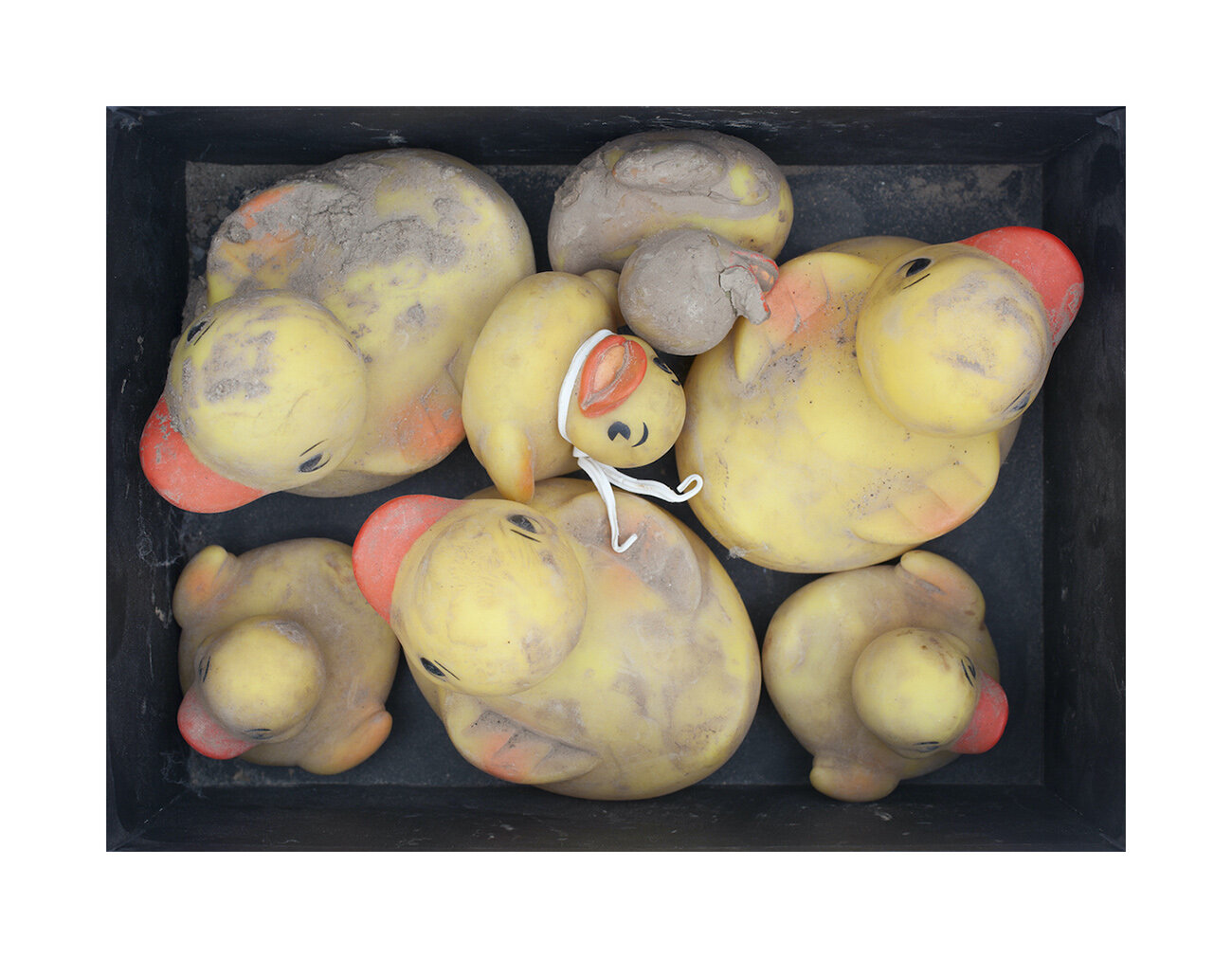
Brightly colored objects are placed along a path to assist those traveling behind them. These rubber ducks were used as trail markers, one of which still had a twist-tie used to fasten to a bush or tree branch.
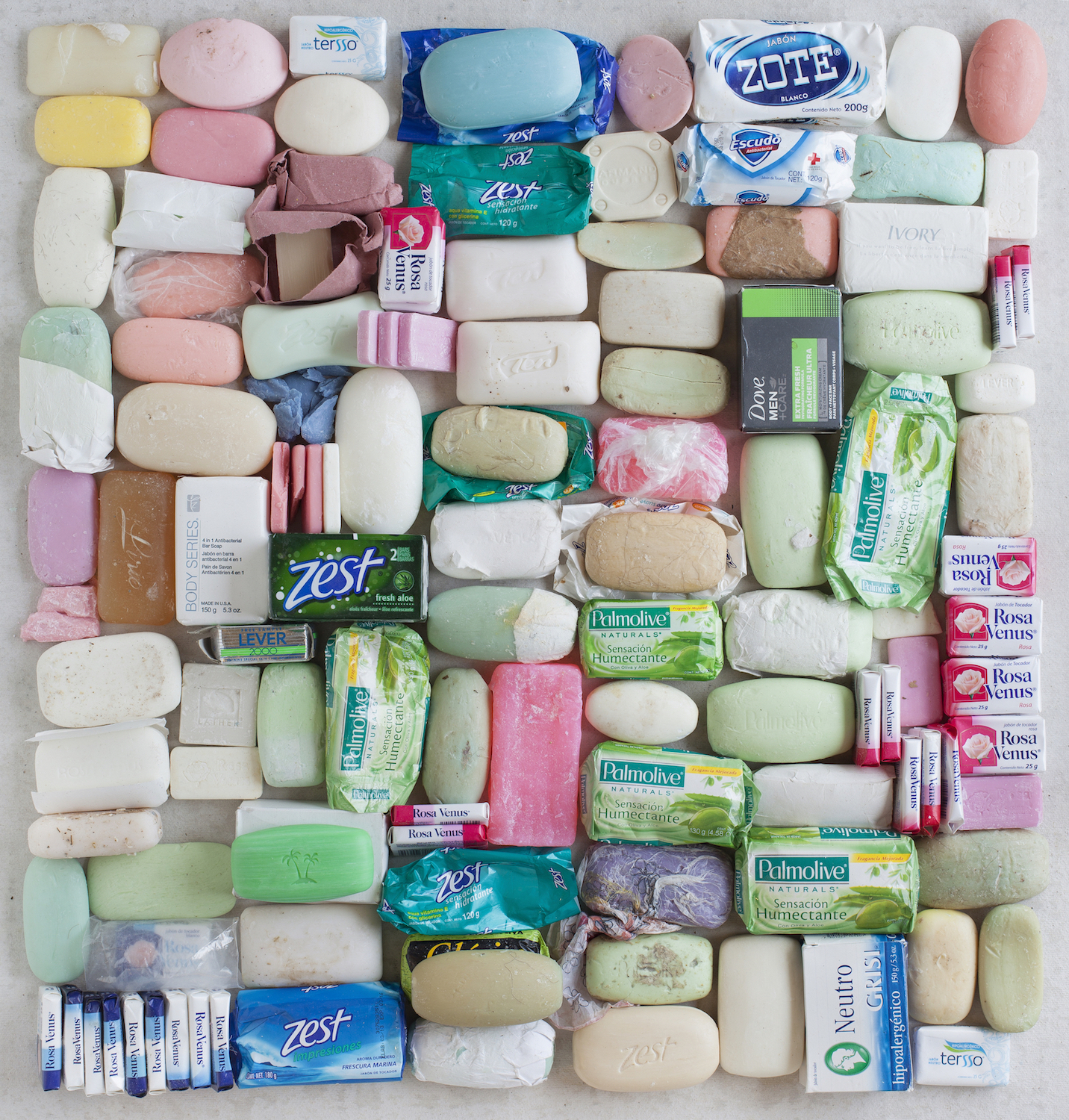
Personal hygiene items such as soap is considered non-essential personal property and is disposed of during intake.
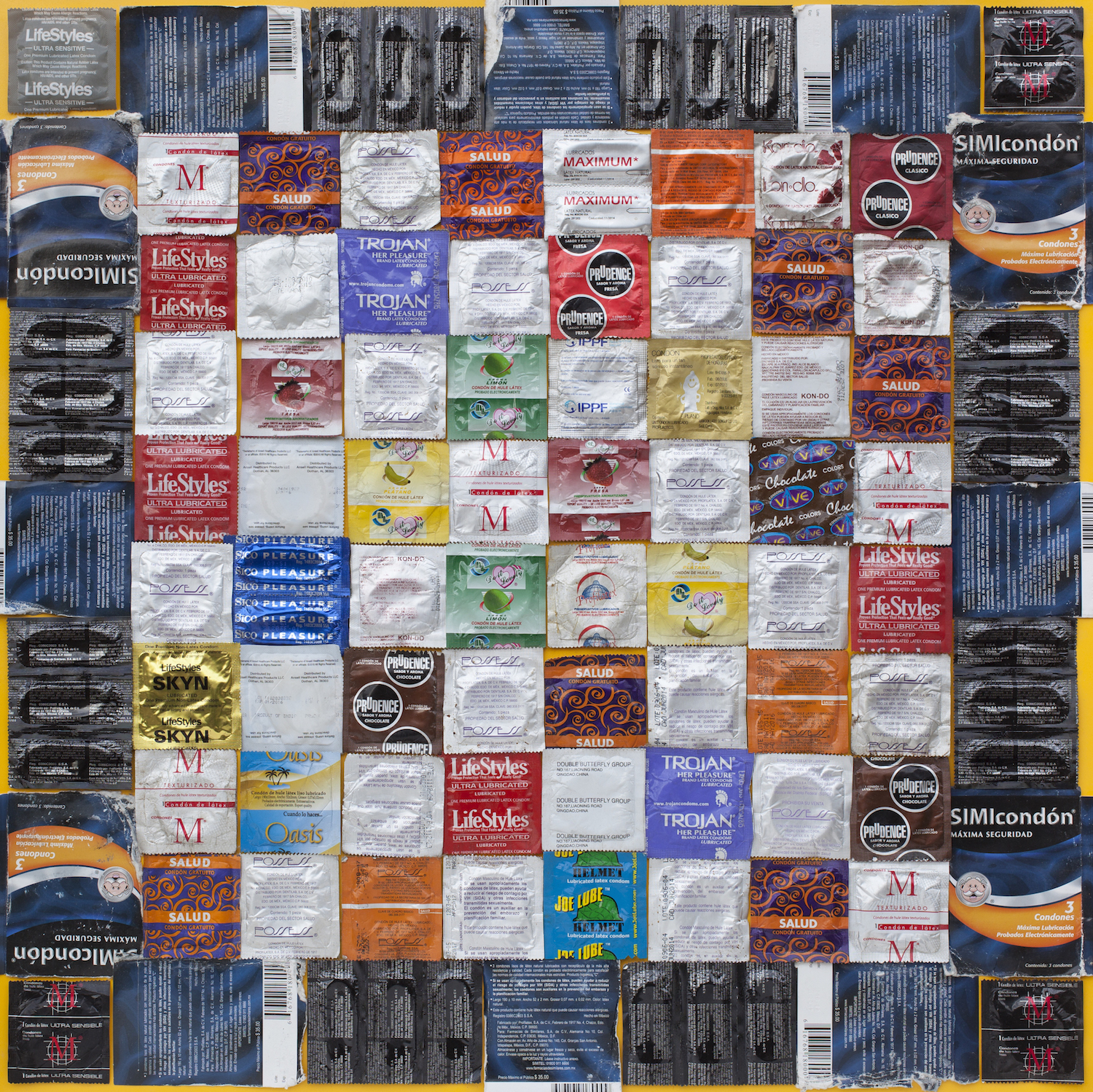
Personal items such as condoms are confiscated and considered non-essential property and discarded during intake.
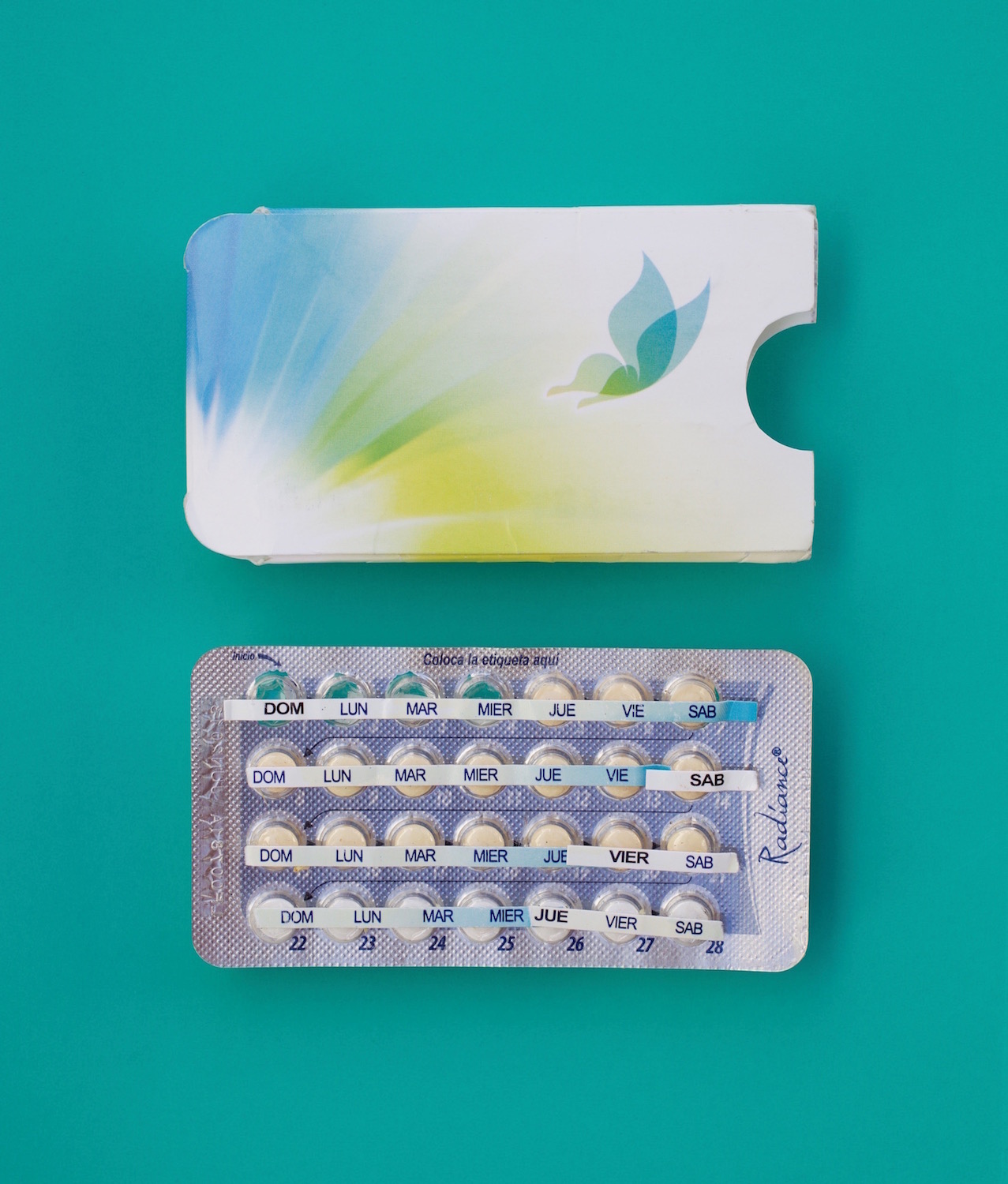
Migrant women or those seeking asylum face additional threats on their journey through Mexico and into the United States. While there are no agreed upon statistics, a general consensus is that at least 25 percent of women who travel are sexually assaulted. Besides preventing unwanted pregnancies, this medication can greatly impact many aspects of a woman's overall health. Personal items such as birth controls pills are considered non-essential and discarded during intake.
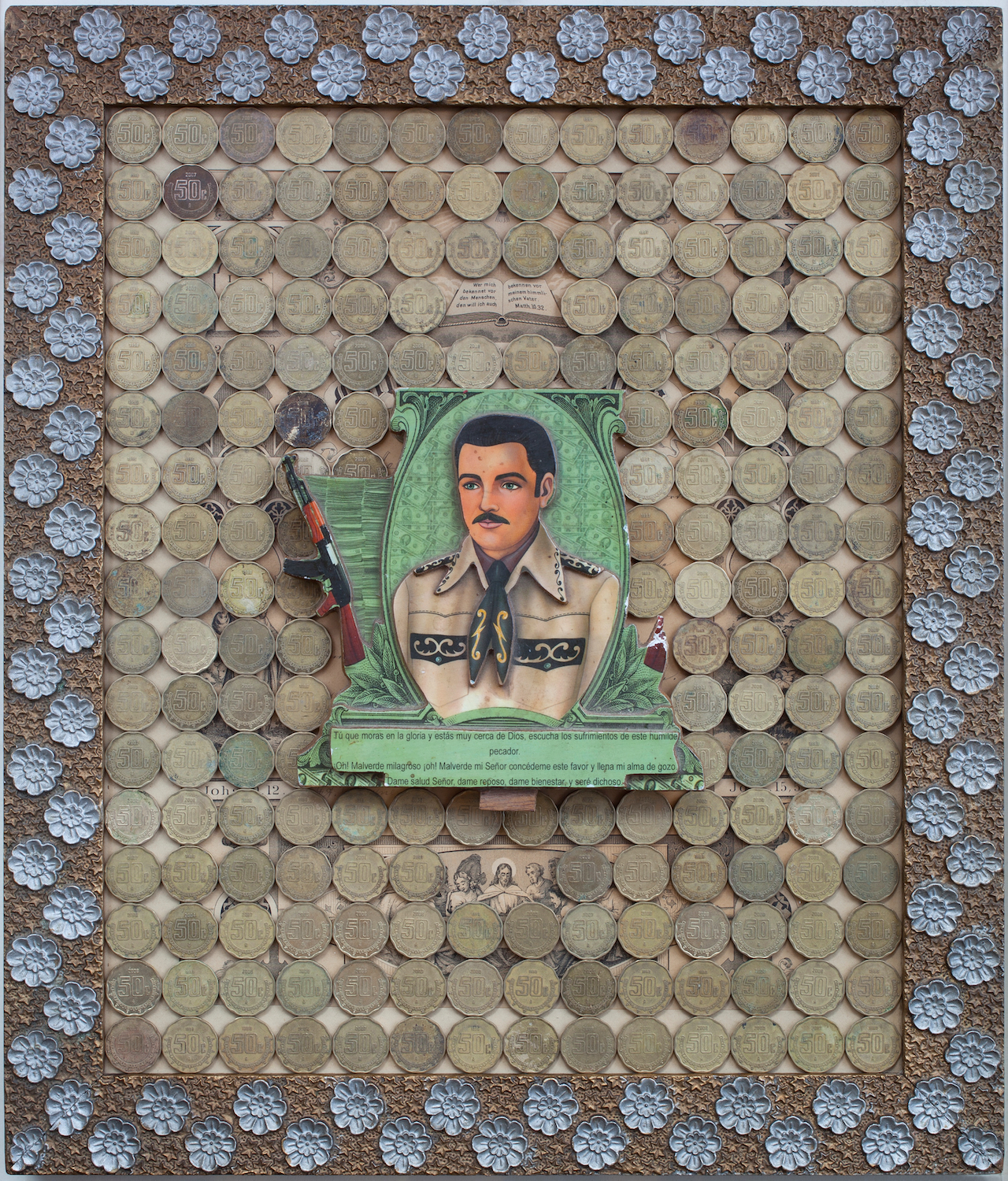
Malverde is a folklore hero in the Mexican state of Sinaloa. He is considered a “Robin Hood” archetype, stealing from the rich to give to the poor. The wooden plaque of Malverde was considered non-essential personal property and discarded during intake as were the accumulated collection of coins.
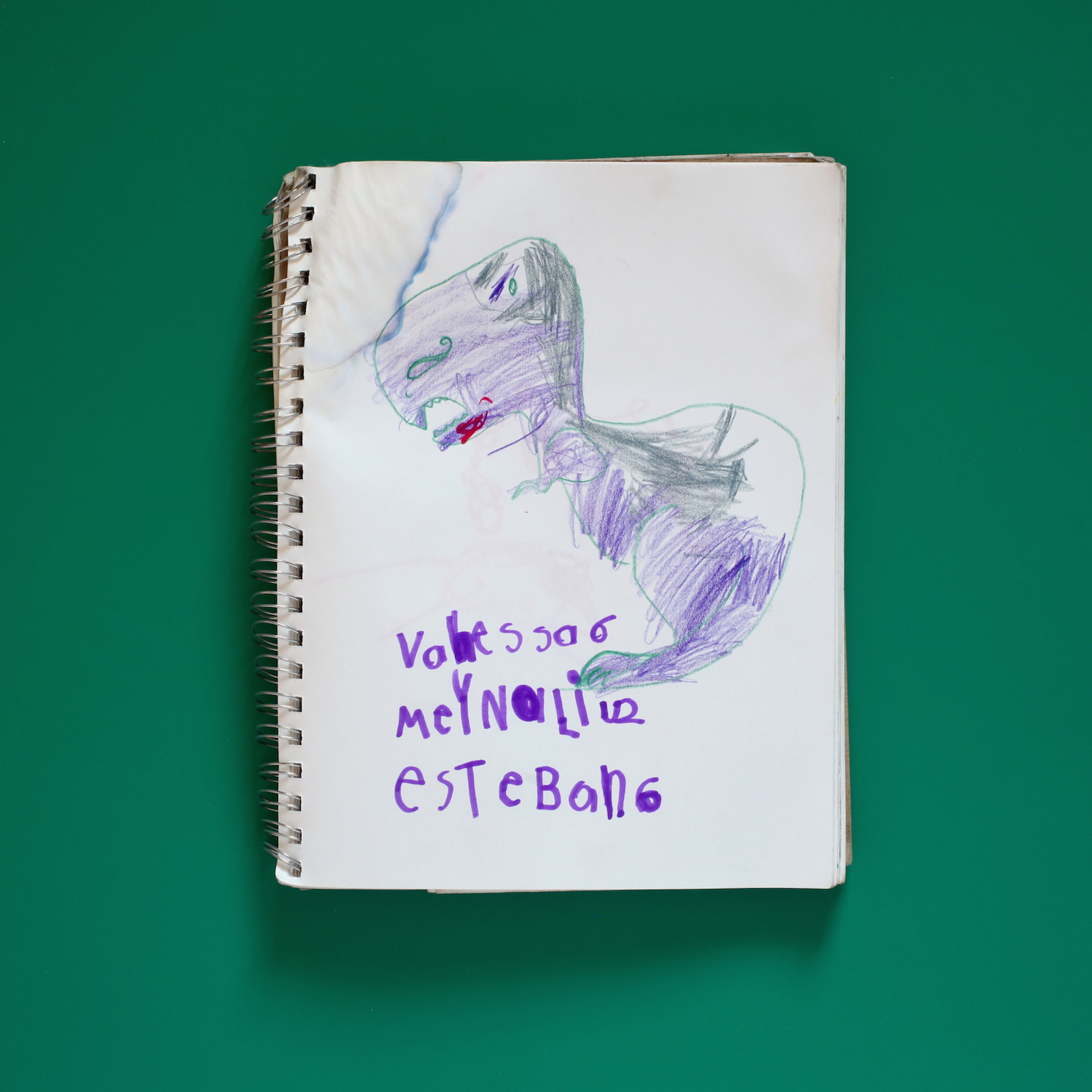
This sketchbook, belonging to a migrant child held mostly drawings relating to his or her family and other experiences.

Intimate personal belongings carried by migrants or those seeking asylum confiscated by U.S. Customs and Border Protection and thrown in the trash.
5 Minutos, 2018
U.S.A. Nail Clippers, 2020
Rhinestone Eyelash Curler, 2019
Dino, 2018
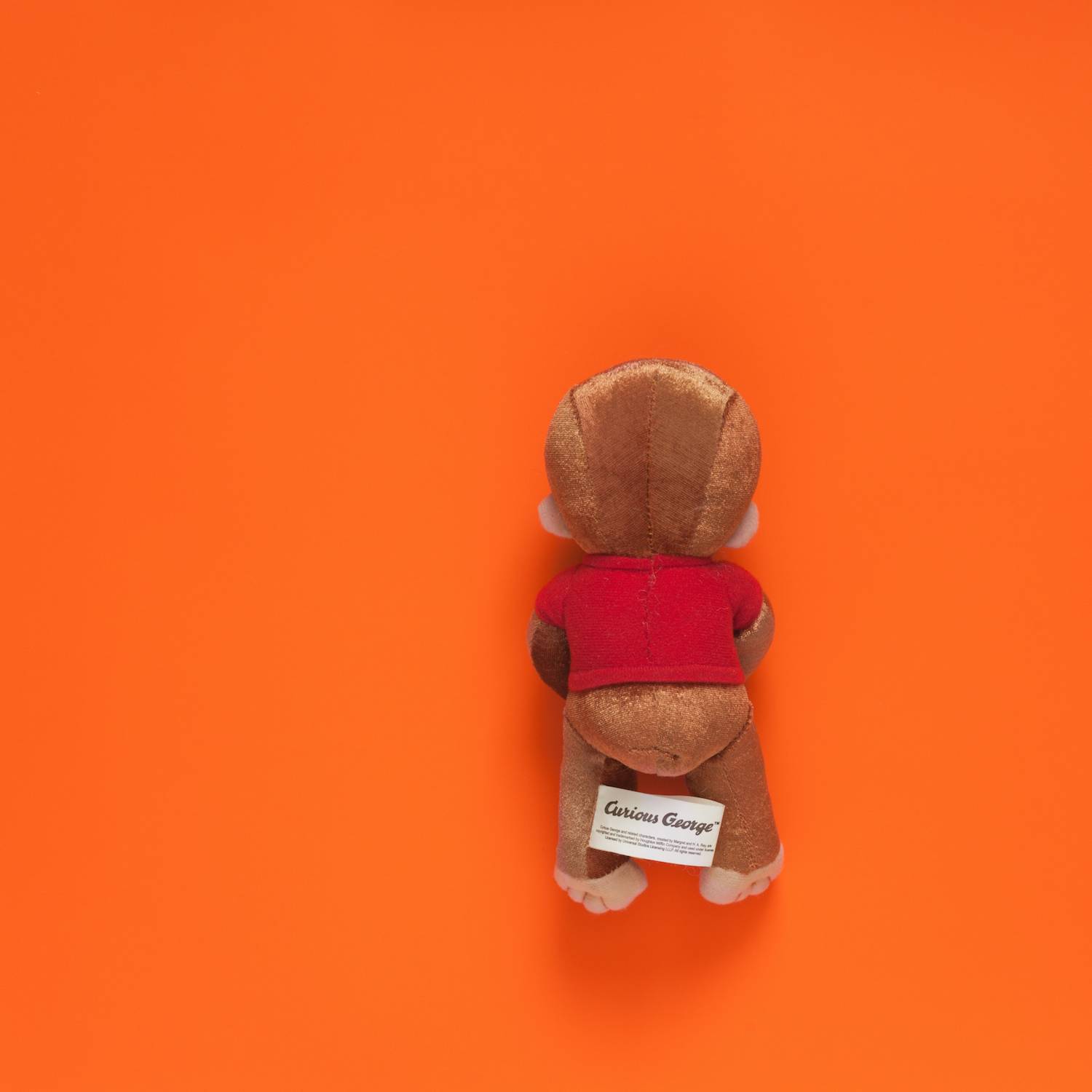
Sometimes migrants will carry an item that is intended to be given as a gift: this stuffed toy was virtually "new". All personal property considered non-essential is discarded during intake.
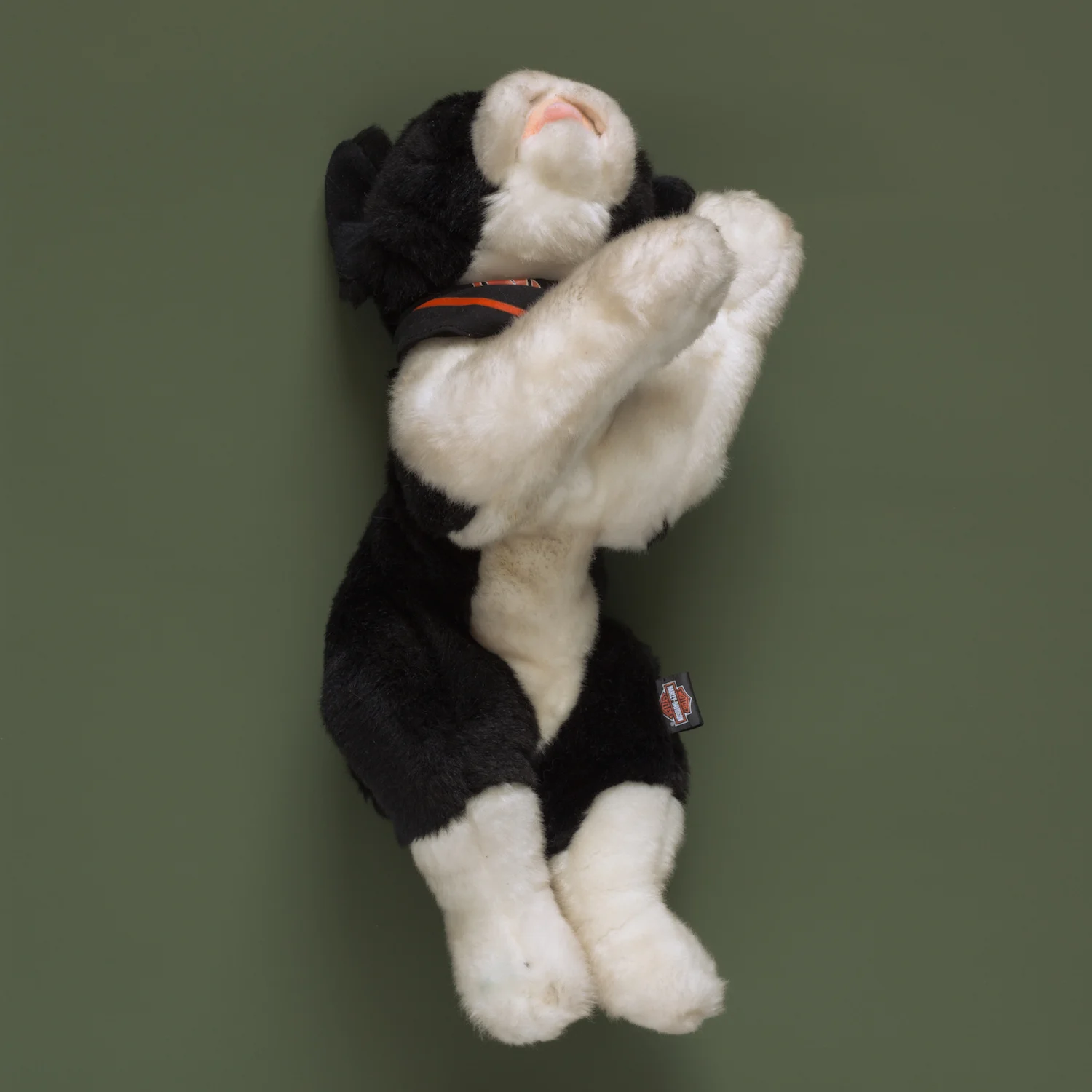
This stuffed animal toy, slightly soiled in the mid-section, may have been used to lay one's head down during rest while crossing the desert. All personal property considered non-essential is discarded during intake.
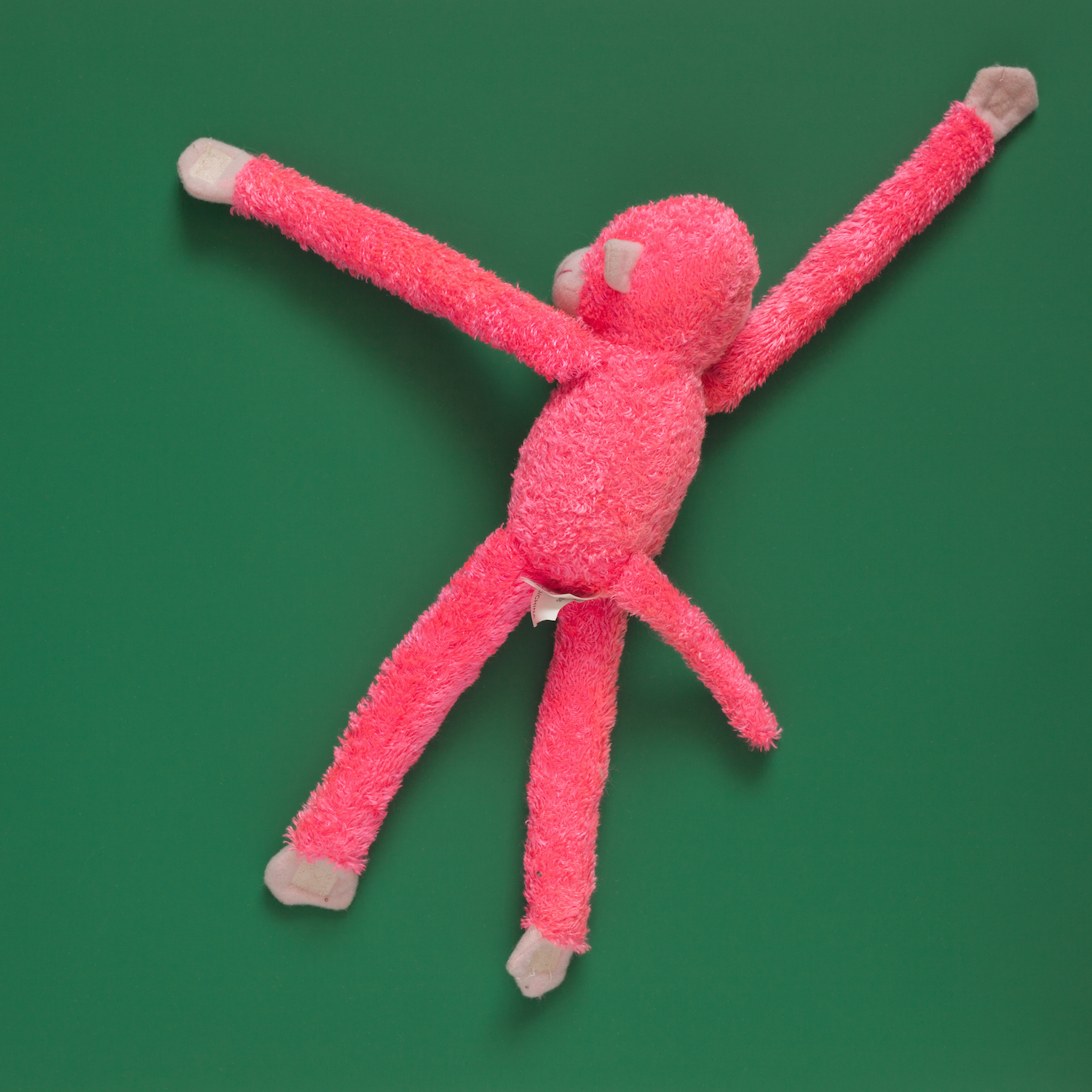
This particular stuffed animal toy has velcro hands and feet which are designed so they can attach to a person's neck, arm or leg. Items considered non-essential personal property are discarded during intake.
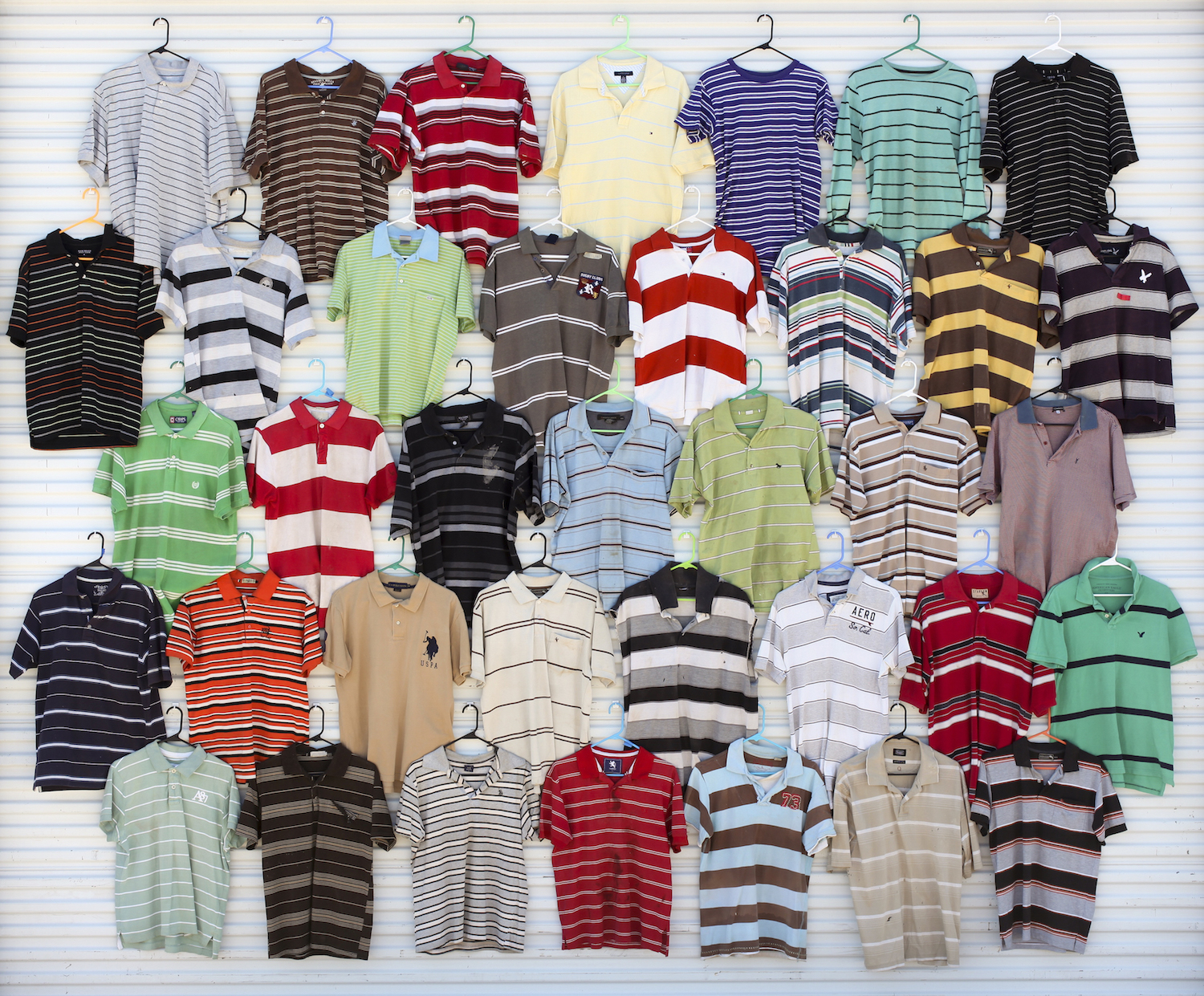
Migrants generally carry additional clothing when crossing the desert so they will have something clean to change into when they arrive. Considered non-essential personal property, extra clothing is discarded during intake.
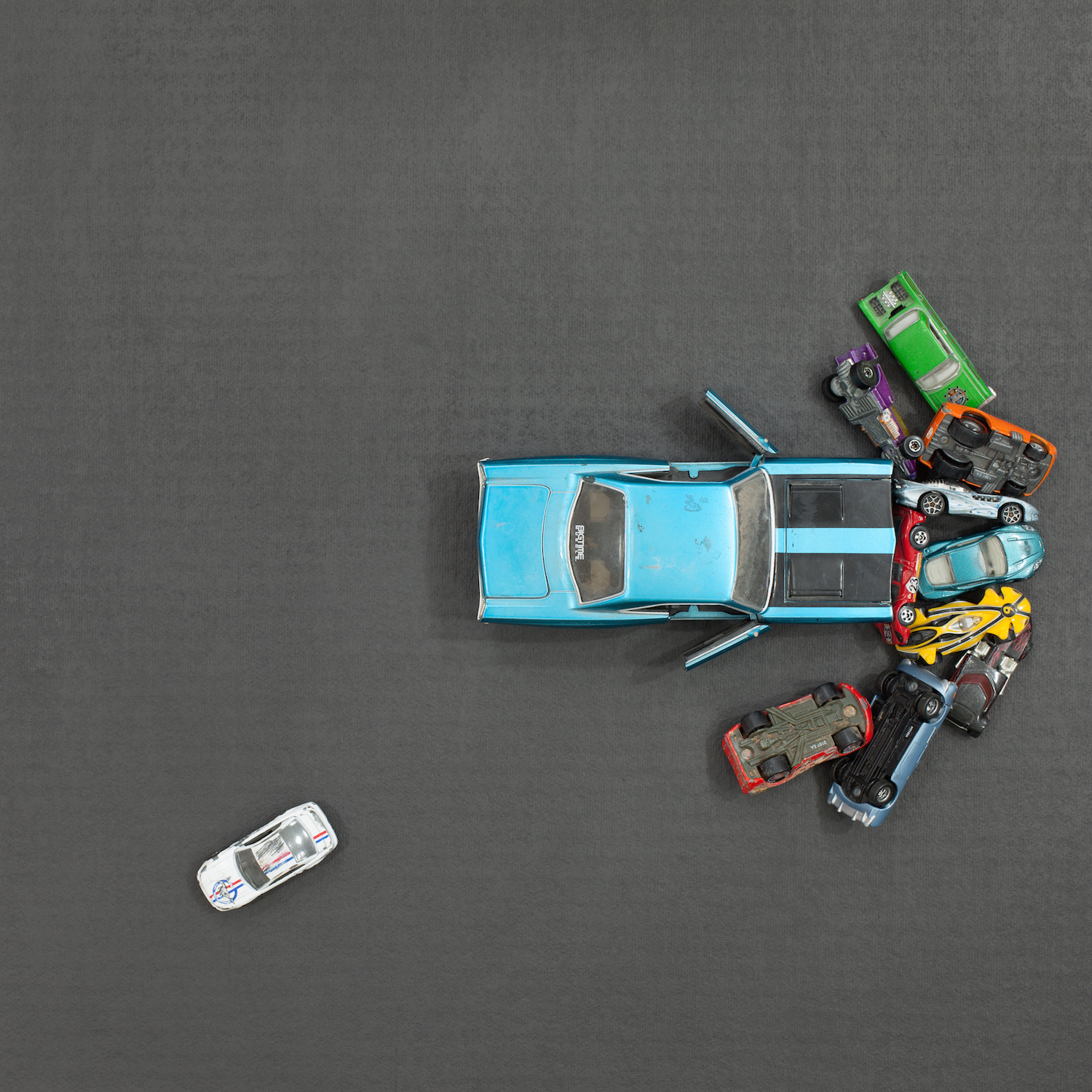
Migrants will carry personal items that are mementos or gifts to a loved one when they reach their intended destination. Personal property considered non-essential is discarded during intake.
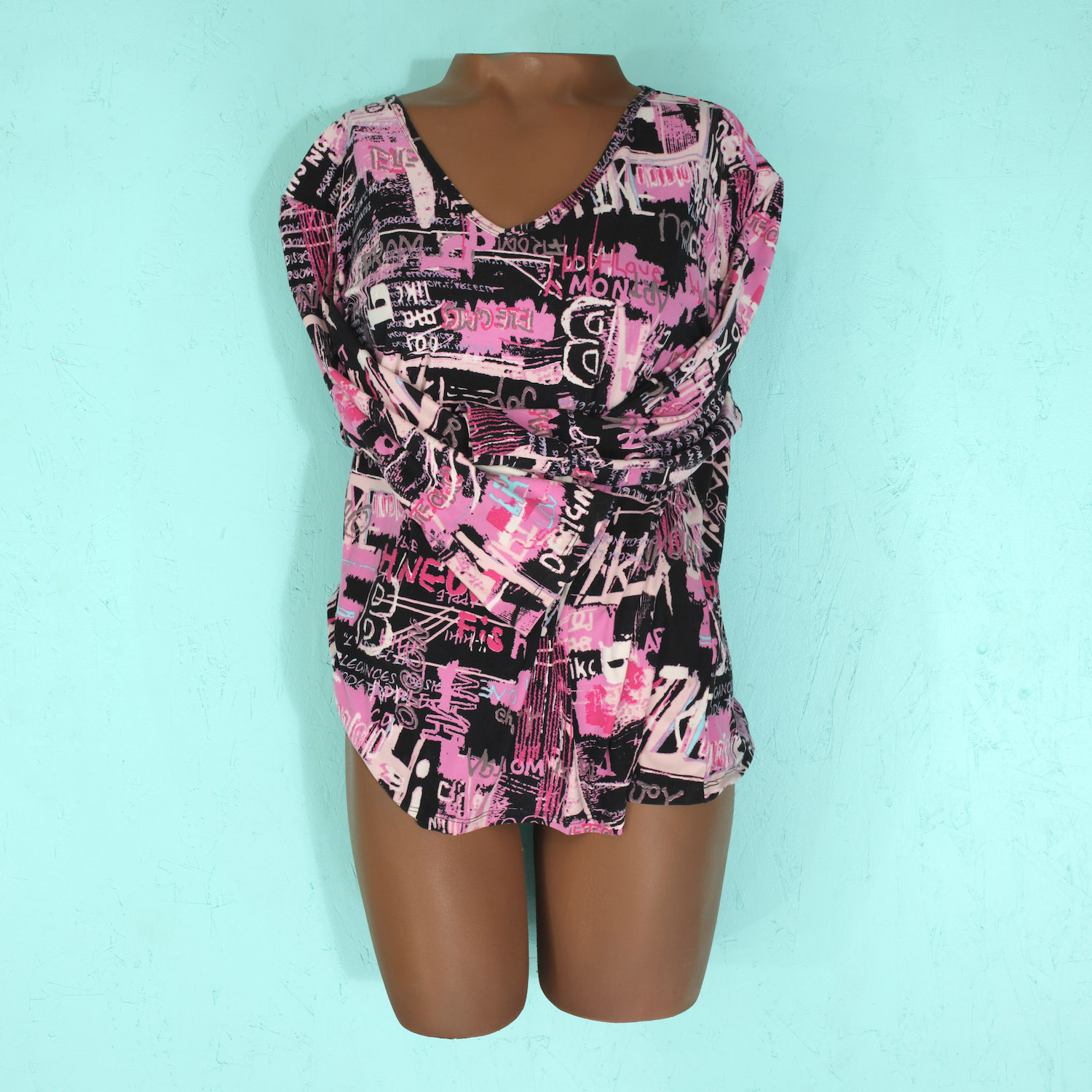
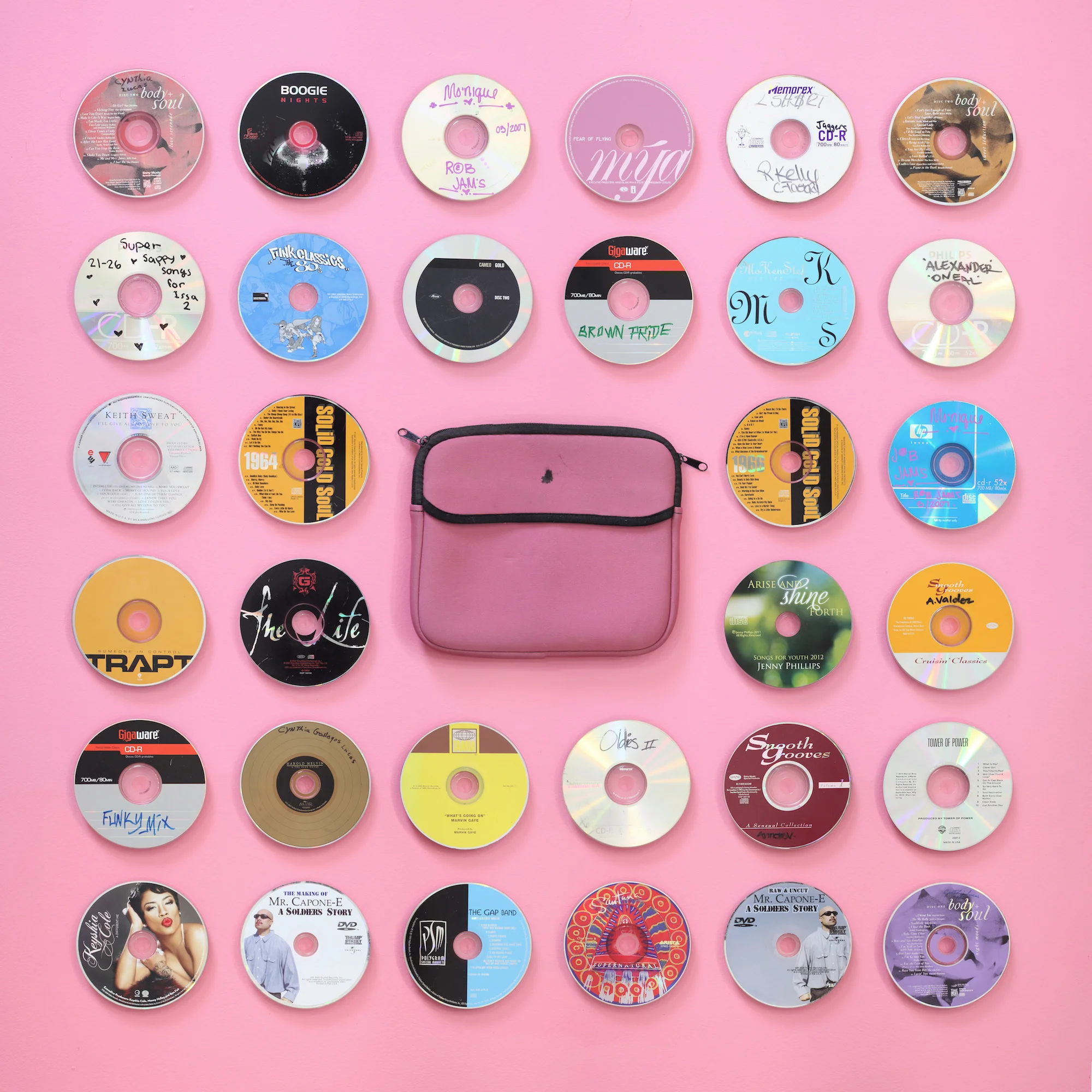
This diverse collection of music along with a couple of DVD's was considered non-essential personal property and was discarded during initial intake at a U.S. Customs and Border Protection processing facility. The music primarily consists of early 60's pop through contemporary rhythm and blues and hip hop.

A shooting target used by a U.S. Customs and Border Patrol agent overlaid with Halls throat lozenges and hard candies carried by migrants or those seeking asylum.
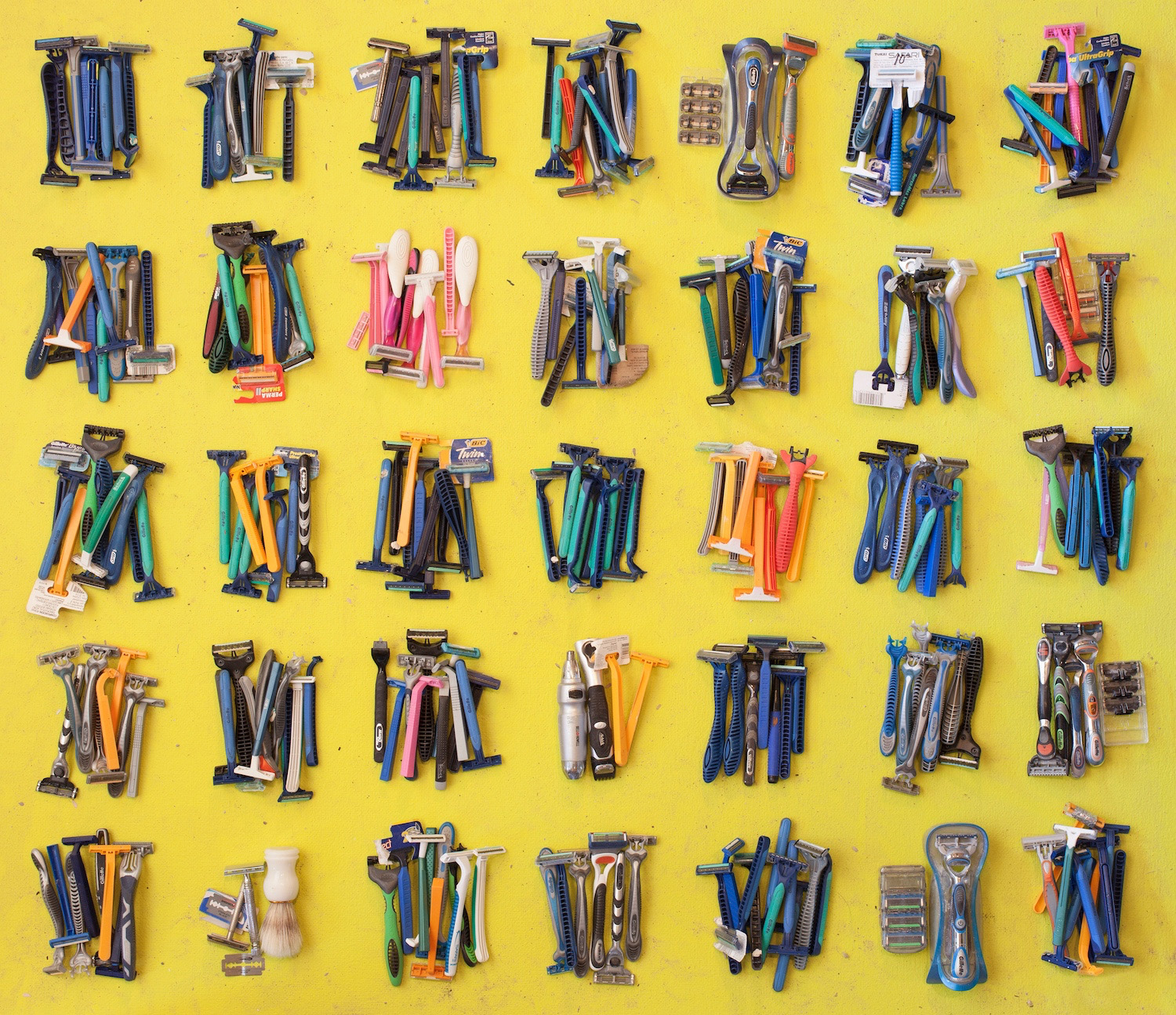
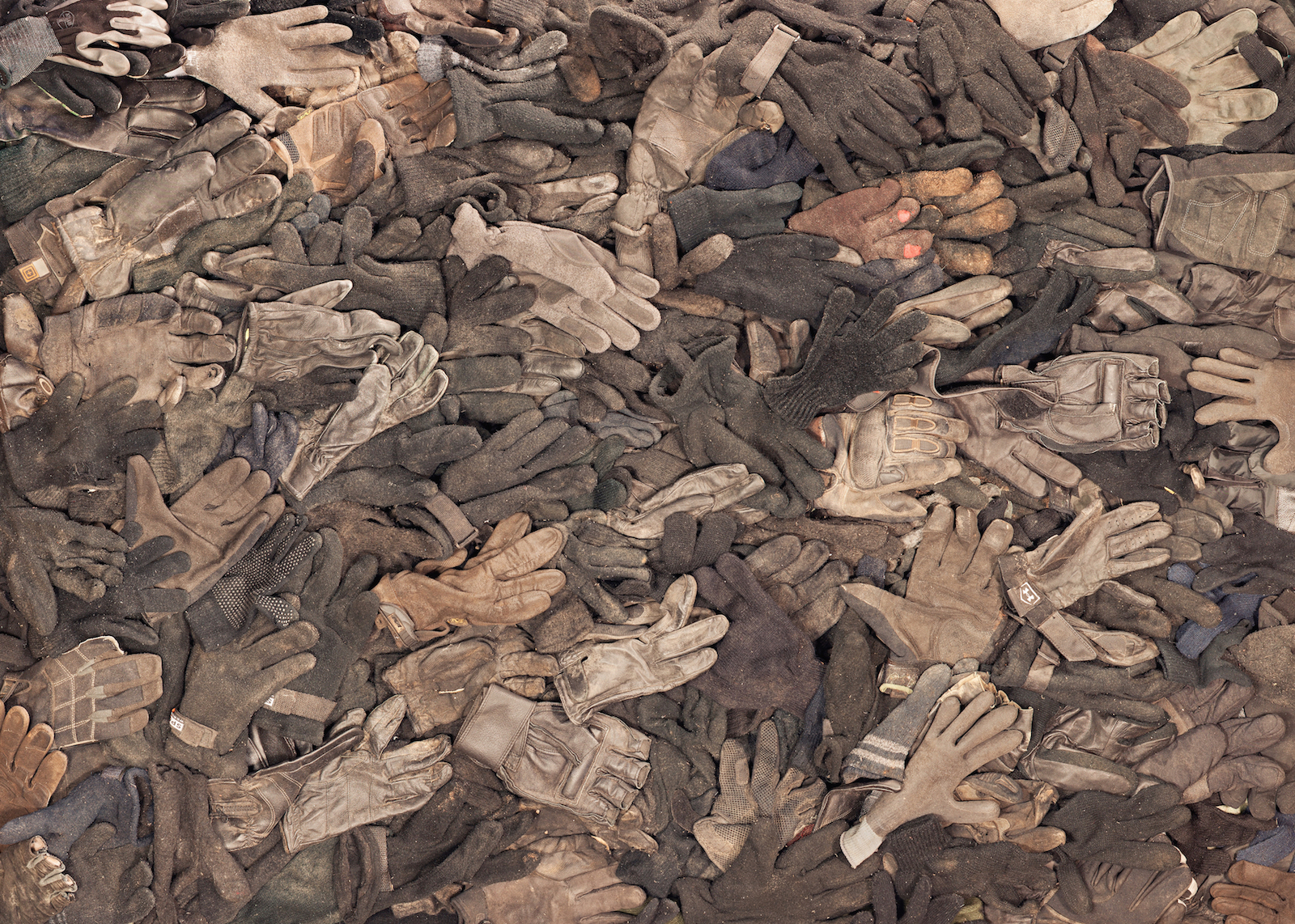
Different gloves for different reasons. The desert and mountain terrain along the U.S./Mexico border varies greatly with brush and other abrasive plants; during winter months temperatures easily drop below freezing. Drug smugglers handle bales of marijuana often covered in rough burlap material and twine. All gloves are considered non-essential personal property and discarded.
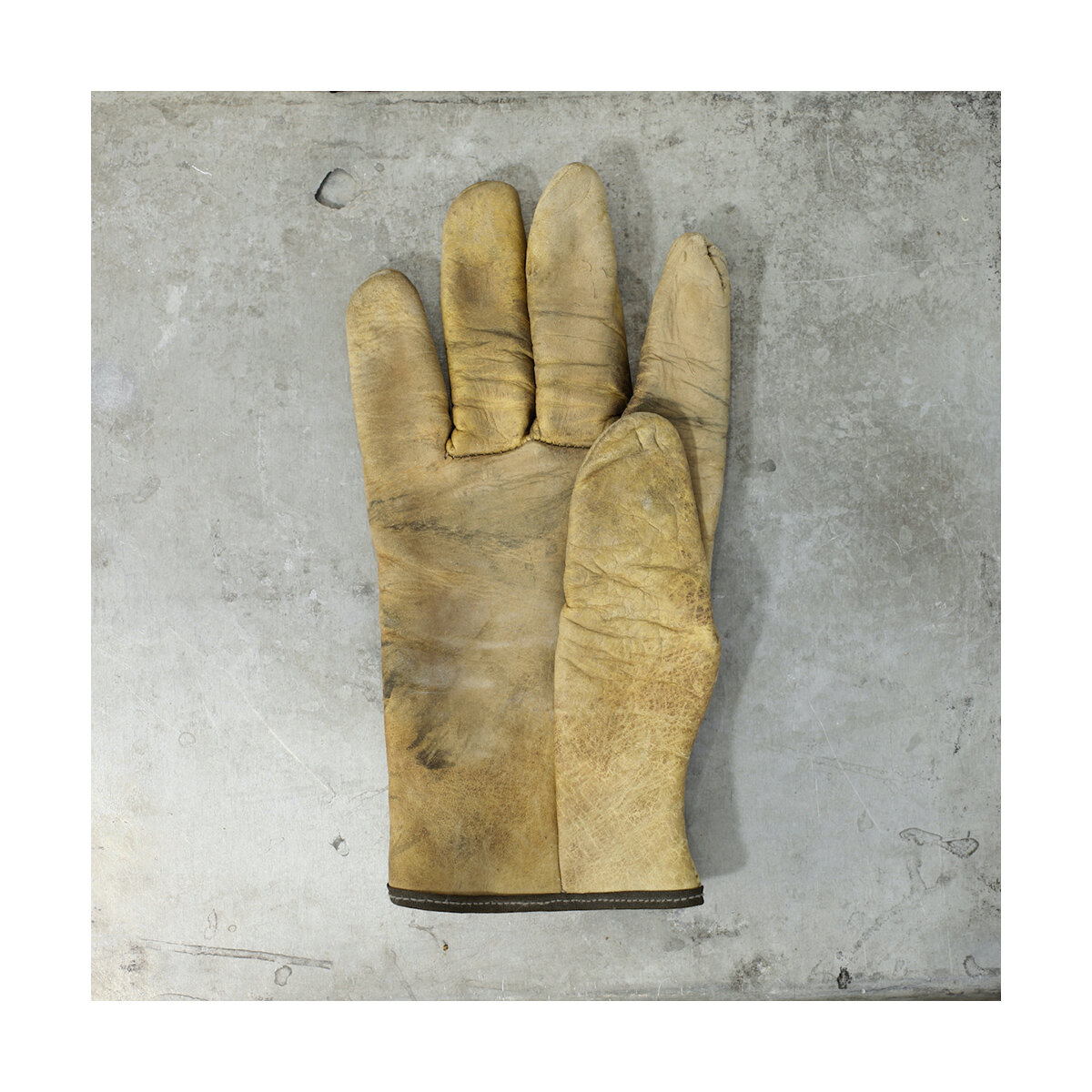
Many migrants who do not have legal status in the U.S. find employment in the construction industry. Personal property considered non-essential is discarded during intake.
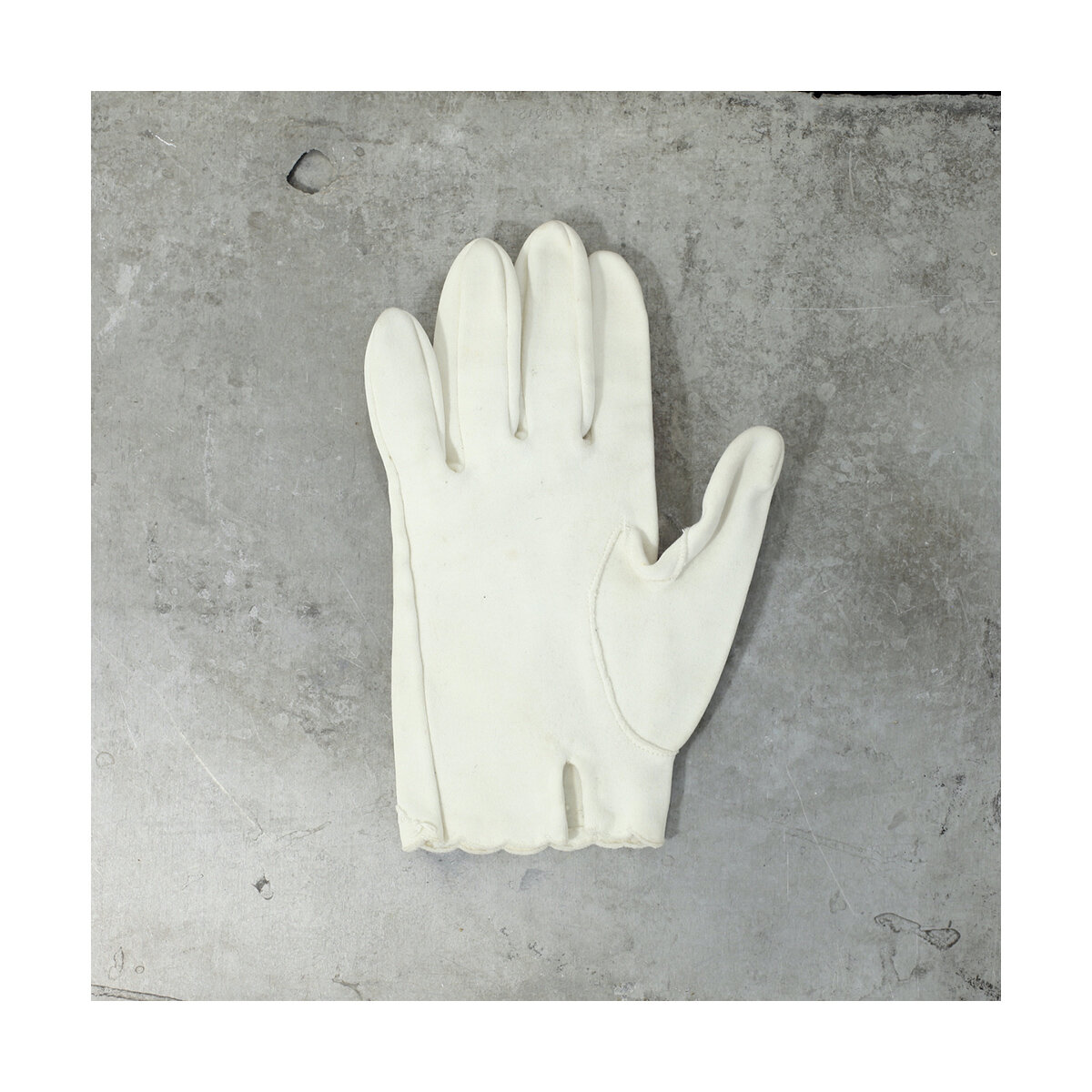
Quinceañera is a celebration of a girl’s 15th birthday in many parts of Latin America and elsewhere in communities of people with latin and hispanic heritage; it marks the transition from childhood to young womanhood. This glove was considered non-essential personal property and discarded during intake.
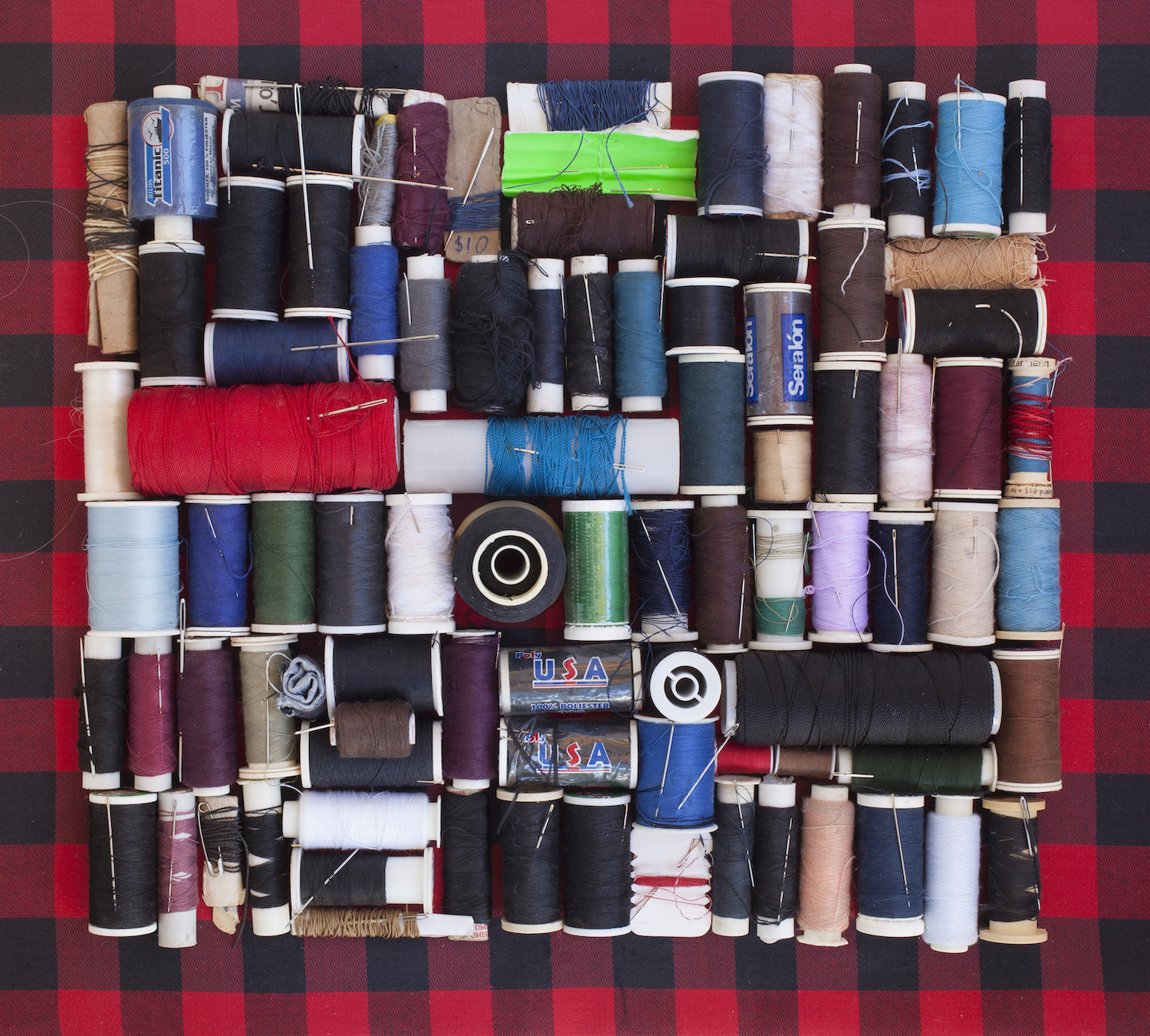
Clothing worn when traveling several days through the desert easily becomes severely stressed, ripped and torn; needles and thread are brought along for repair.
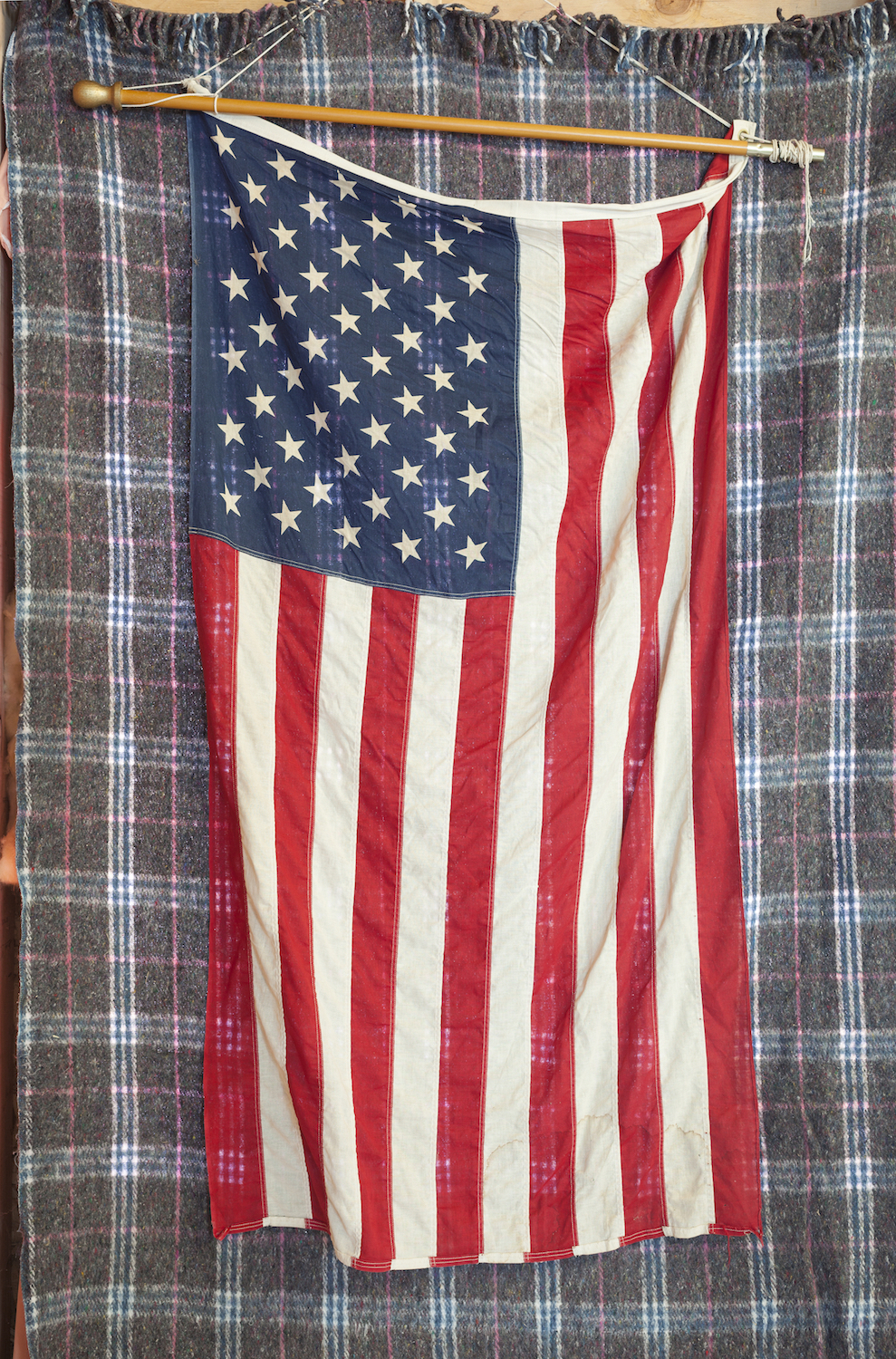
Blankets are brought along for shelter and comfort when traveling several days through the desert. Generally considered non-essential personal property, they are discarded during intake. U.S. flag personal item belonging to the artist.
